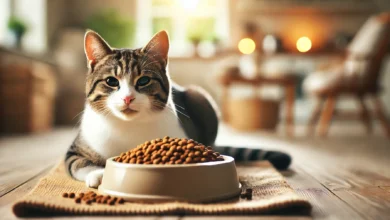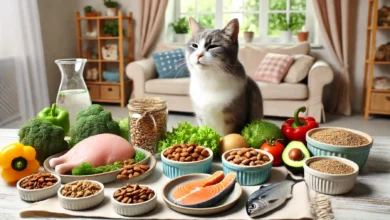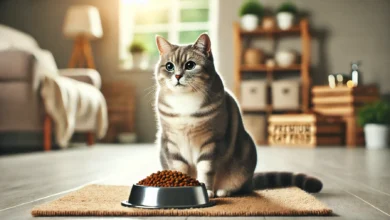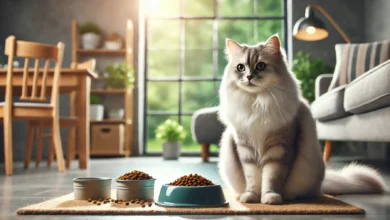The Importance of Animal Proteins in Cat Food
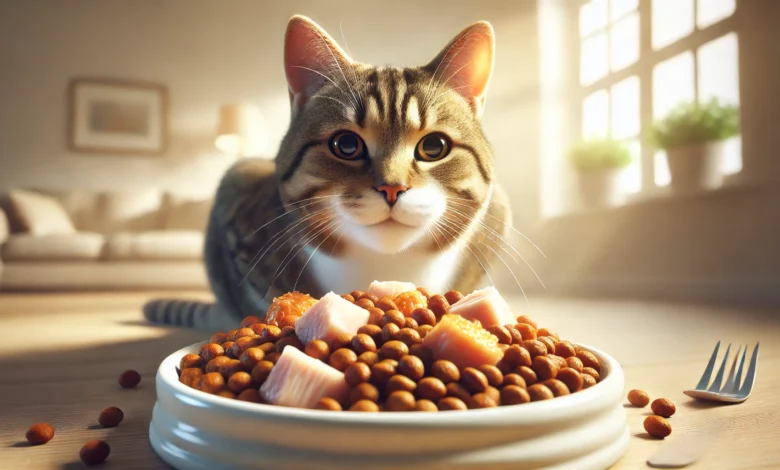
Being carnivorous by nature, cats’ diet should therefore reflect this.
A critical part of their diet comes from animal proteins, providing essential nutrients that help in sustaining health and vitality.
To ensure that your furry friend gets the right nutrition, you need to understand the role animal proteins play in cat foods.
Most of the cat foods in the market boast a high content of protein, but all proteins are not equal.
We will explore why animal proteins are so important to your cat and how they differ from other sources of protein.
Feeding your cat a diet rich in animal proteins helps to support the development of their muscles, immune system, and overall well-being.
But which proteins does your cat really need?
And what should you look for on the label when selecting the right food for them?
Let’s dive into the answers by first understanding the basics regarding animal proteins in cat food.
Table of Contents
What Are Animal Proteins in Cat Food?
Animal proteins, the most important type of protein ingredient in cat foods, come from animals such as chicken, beef, fish, lamb, and other similar species.
These proteins are made up of amino acids, which are the basic units that your cat needs to grow and stay healthy.
Since cats are obligate carnivores, they have an essential requirement for certain nutrients that occur only in animal tissues, including taurine and arachidonic acid.
Animal proteins are complete in that they contain all the essential amino acids required for a cat’s body to function properly.
An inadequate amount of these proteins can result in malnutrition and serious health problems in cats.
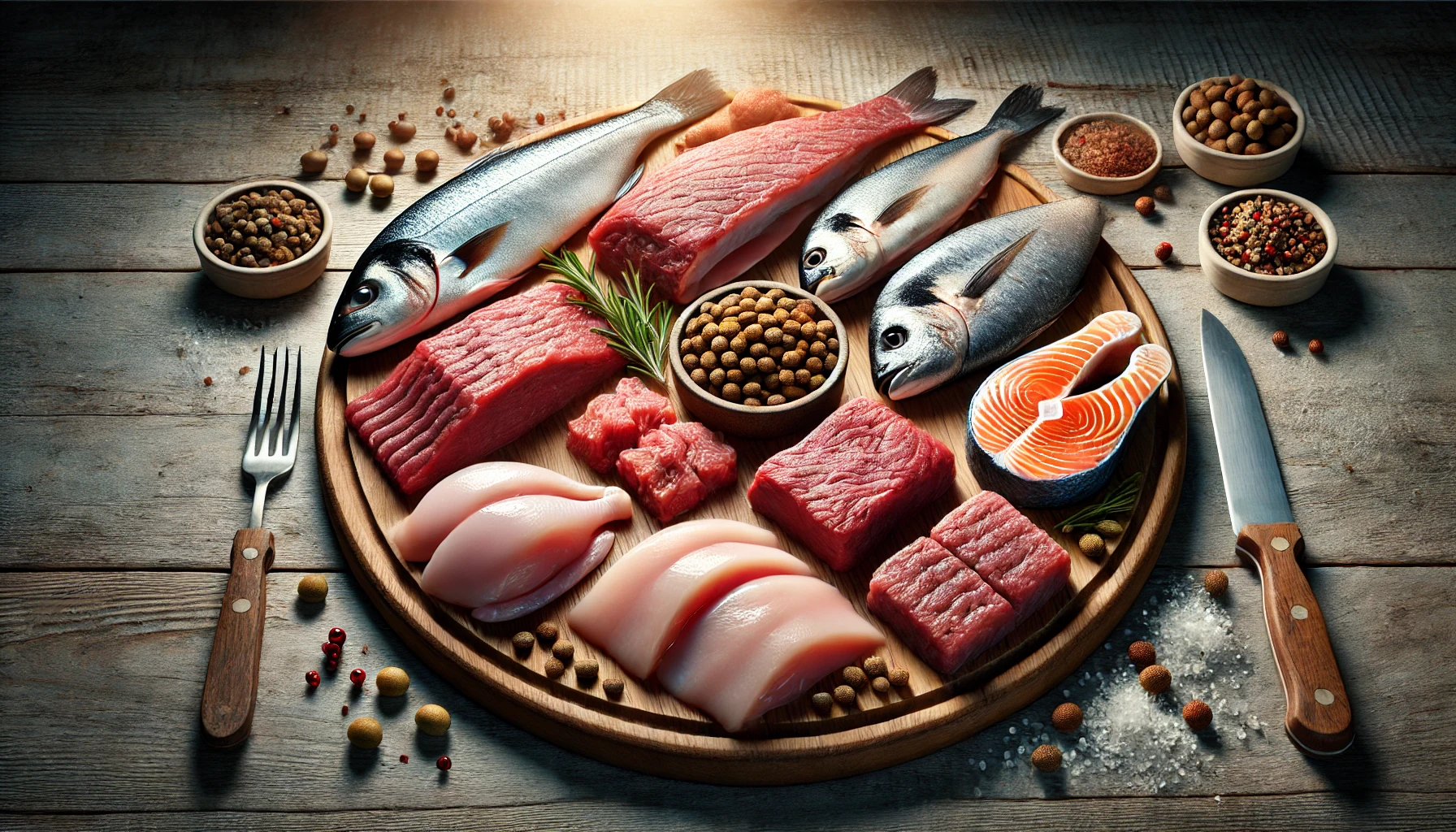
Definition of Animal Proteins
Animal proteins are those that come from animal origin, such as meats, organs, and by-products.
These proteins contain essential nutrients, including taurine, which is an amino acid crucial for feline heart function, vision, and reproduction.
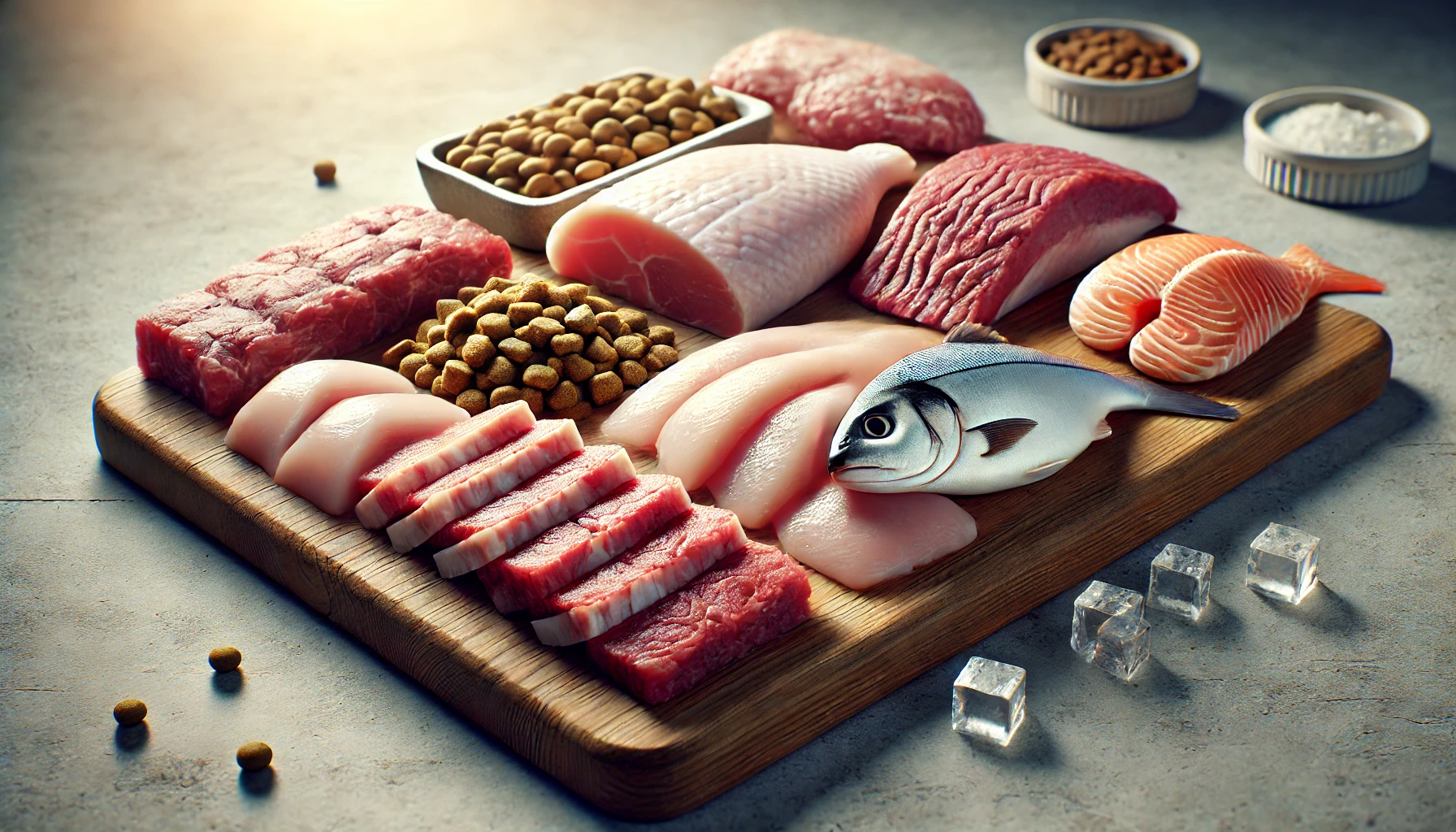
Common Sources of Animal Proteins
Some of the most common sources of animal proteins in cat food include:
- Chicken: A lean and extremely digestible protein source that is easy on a cat’s stomach.
- Beef: A red meat option, highly nutritious and higher in fat.
- Fish: A good source of omega-3 fatty acids in addition to proteins.
- Lamb: Higher in fat, offering a different nutrient and taste option that picky eaters might enjoy.
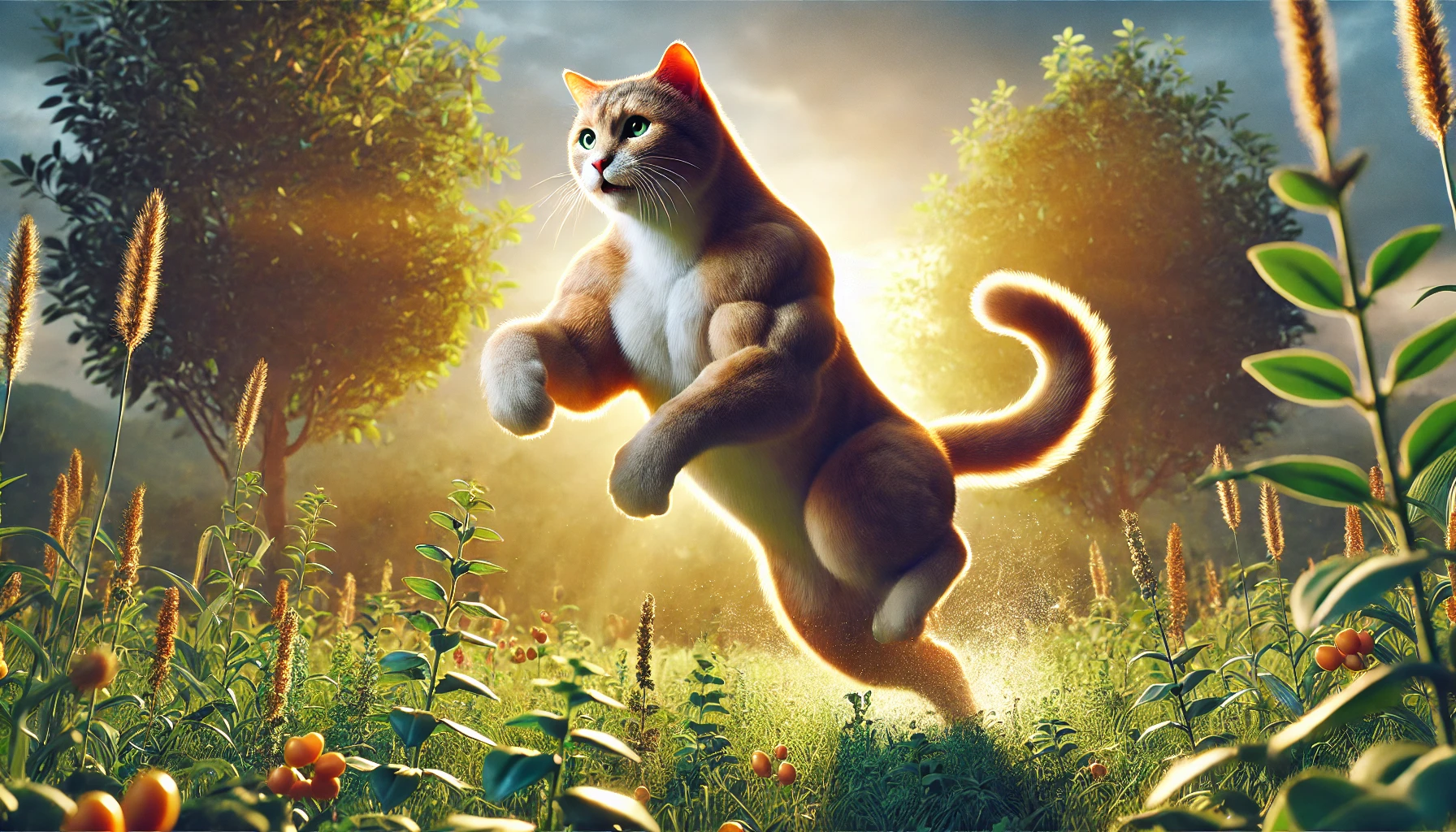
Why Cats Need Animal Proteins
Animal proteins are necessary because they contain all the amino acids that cats cannot produce on their own.
Nutrients like taurine, which is derived only from animal proteins, are vital for the vision, heart health, and immune system of your cat.
Additionally, animal proteins help build lean muscle mass and provide the energy your cat needs for daily activities.
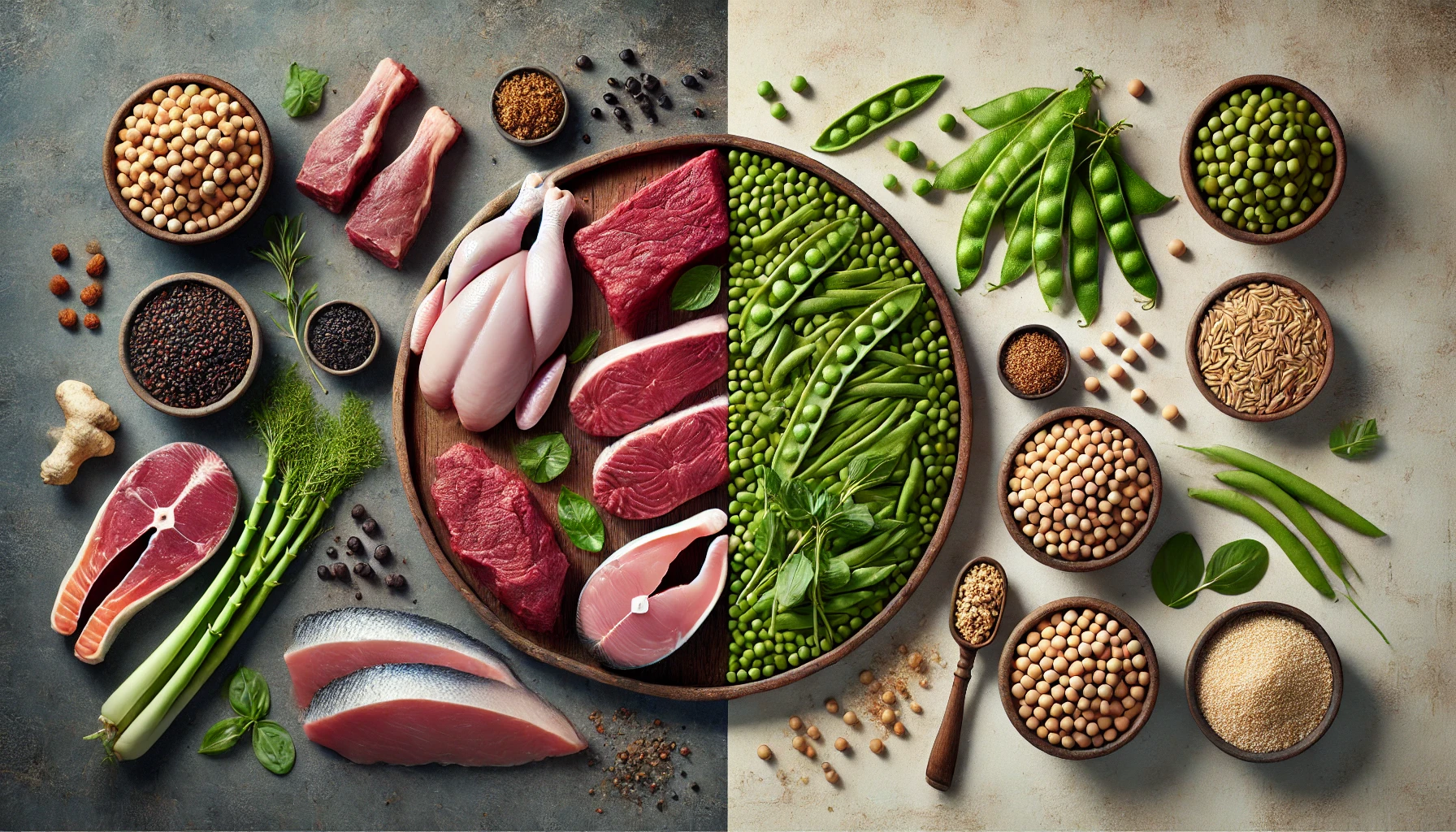
Animal Proteins vs. Plant Proteins
While plant proteins are common in many cat foods, they are less beneficial to cats.
In addition to lacking a complete amino acid profile, plant-based proteins are typically less digestible for cats.
Relying too much on these proteins can result in nutrient deficiencies.
For optimal health, cats require a diet that is primarily based on high-quality animal proteins.
Understanding the role of animal proteins in your cat’s diet is key to ensuring they receive all essential amino acids and nutrients for their health.
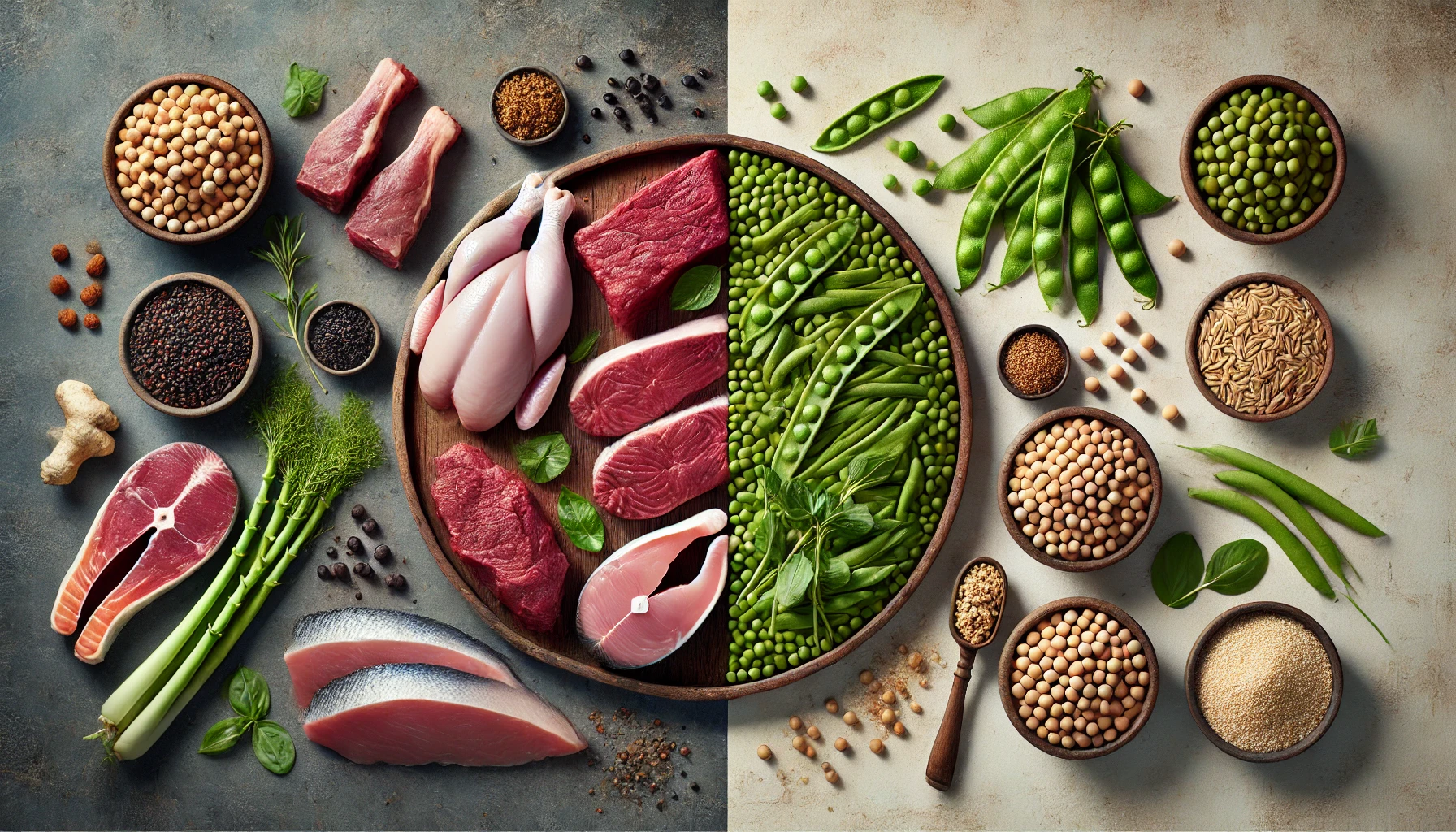
Health Benefits of Animal Proteins for Cats
Animal proteins contribute to the overall health of cats, from muscle development to energy production.
Being obligate carnivores, cats thrive on animal proteins because these proteins provide all the essential amino acids their bodies require.
Understanding the specific health benefits associated with animal proteins will help you make the right decisions about your cat’s diet, ensuring they get the best nutrition possible.
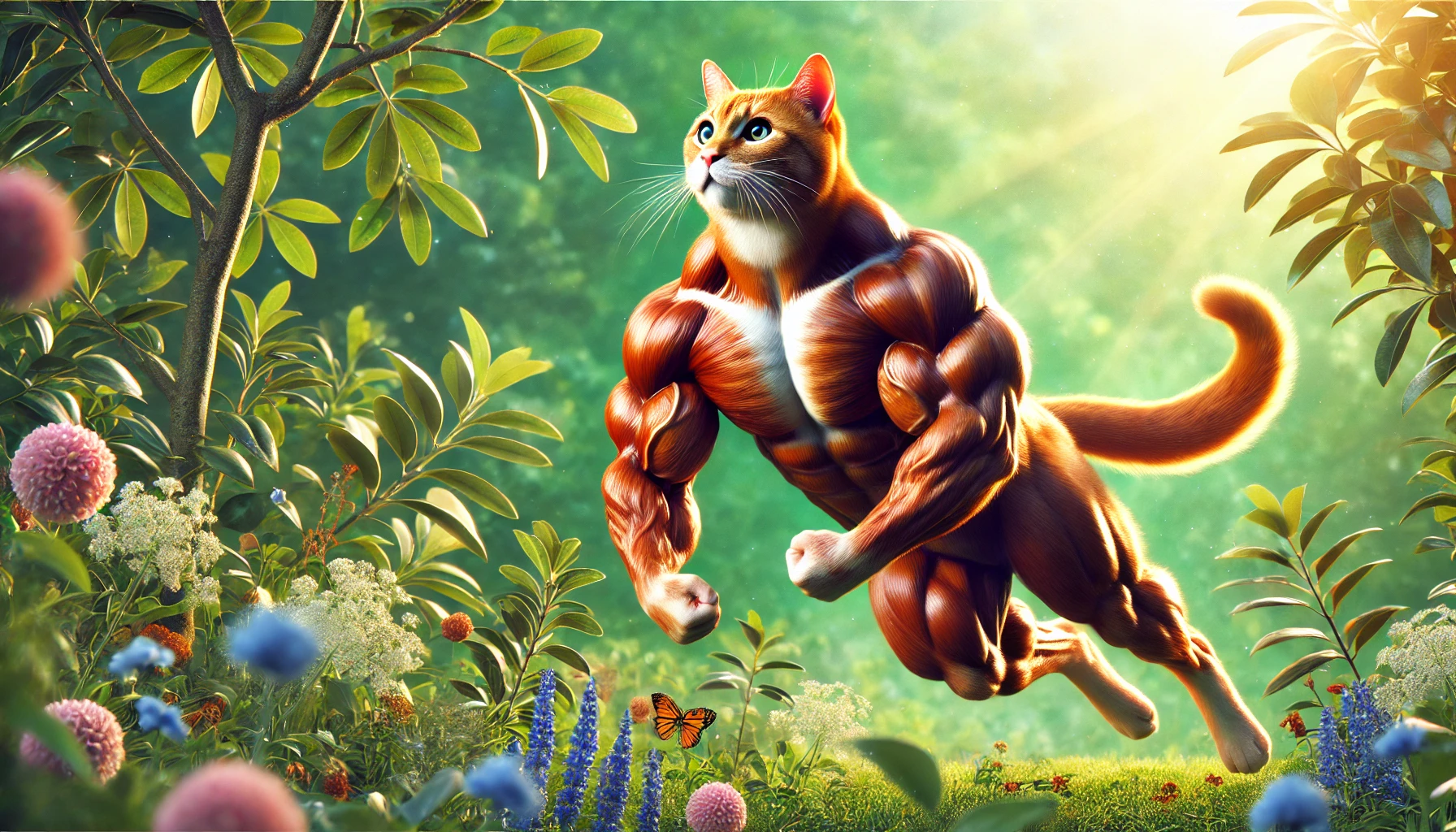
Supporting Muscle Growth and Maintenance
Animal proteins in food are vital for a cat’s ability to build and maintain muscle.
Cats naturally require more protein than many other animals because their bodies continuously use these proteins to maintain lean muscle.
Diets rich in animal proteins ensure that your cat develops healthy muscles and maintains strength throughout their life, especially as they age.
For active and younger cats, muscle maintenance is even more crucial as their physical activity increases the demand for protein.
If they don’t get enough animal proteins, muscle breakdown may occur, leading to weakness and poor health.
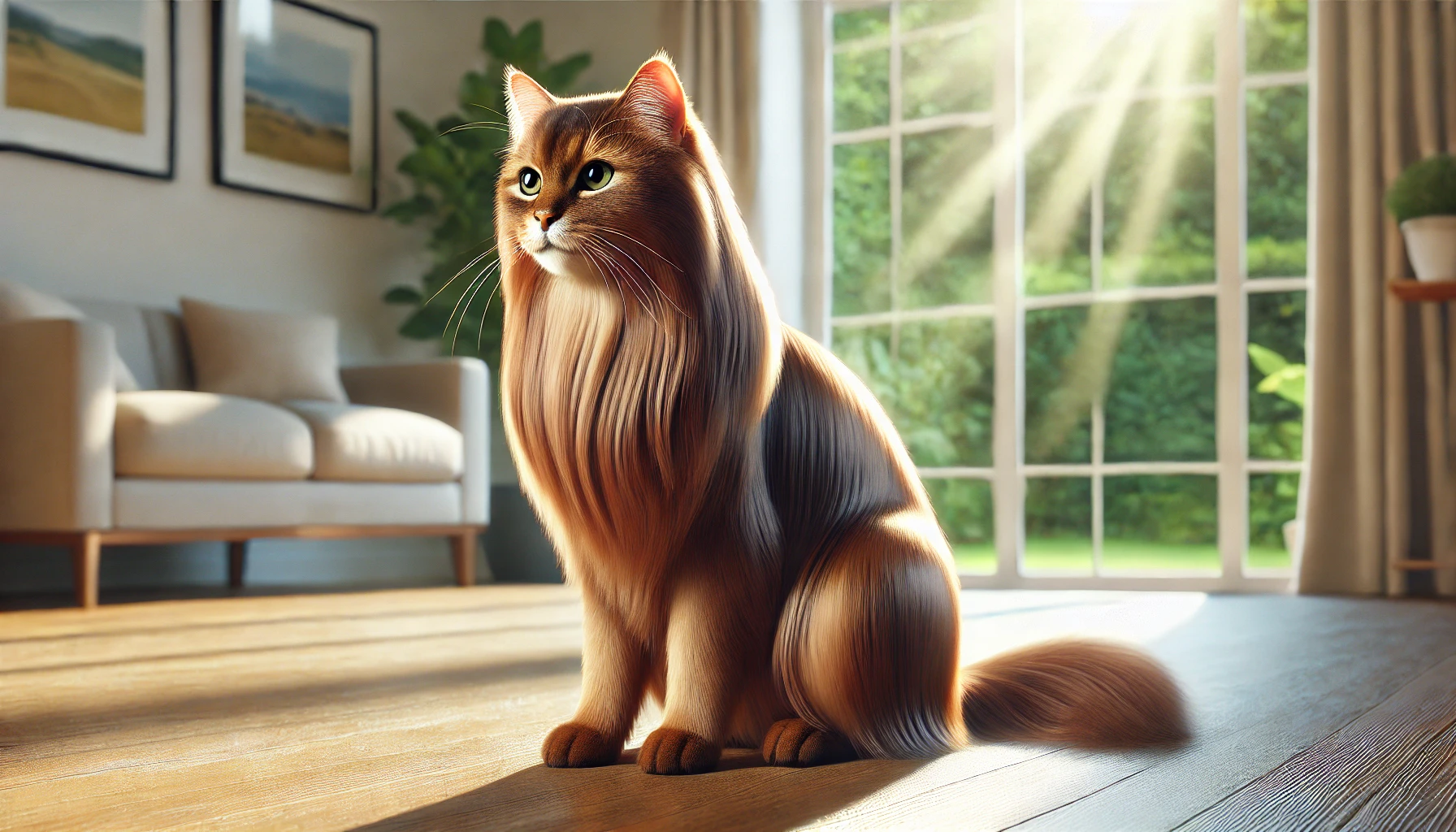
Improving Skin and Coat Health
A visible sign of a high-quality diet rich in animal proteins is a cat’s healthy skin and shiny coat.
Proteins are essential for the production of keratin, the main component of hair.
A diet deficient in protein can lead to a dull coat, hair loss, and poor skin health.
Essential fatty acids found in animal proteins, particularly from fish, help maintain a glossy coat and moisturized skin, preventing common issues like dryness and irritation.
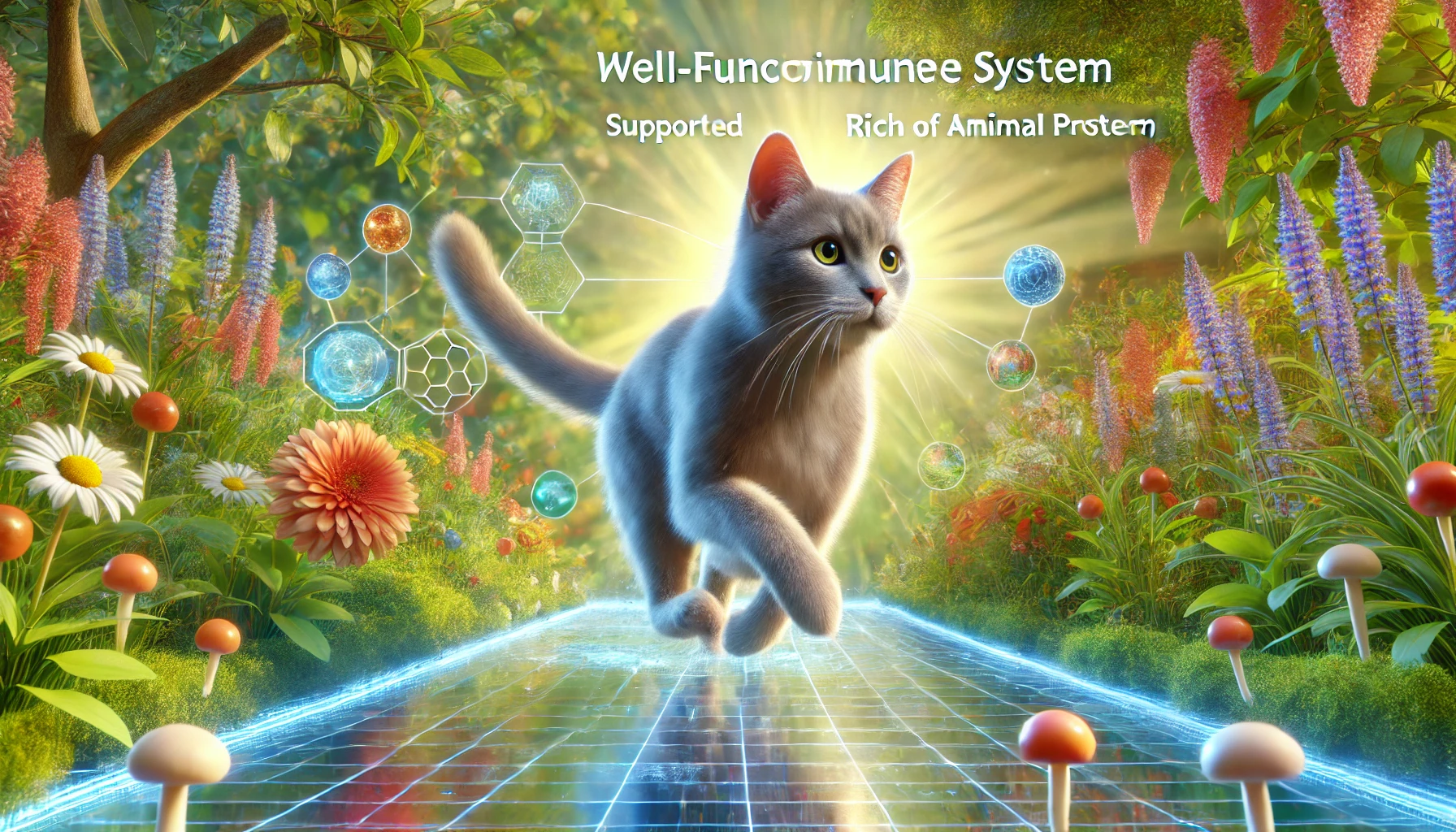
Boosting Immune System Function
Quality protein intake is directly related to immune function.
Animal proteins support the production of antibodies, which are essential for fighting infections and diseases.
Cats fed a diet rich in animal proteins tend to have stronger immune systems, lowering the chances of infection and improving overall health.
Amino acids in animal proteins are also critical for repairing damaged tissues and maintaining the integrity of immune cells.
This means your cat is better equipped to heal from injuries and recover from illnesses.
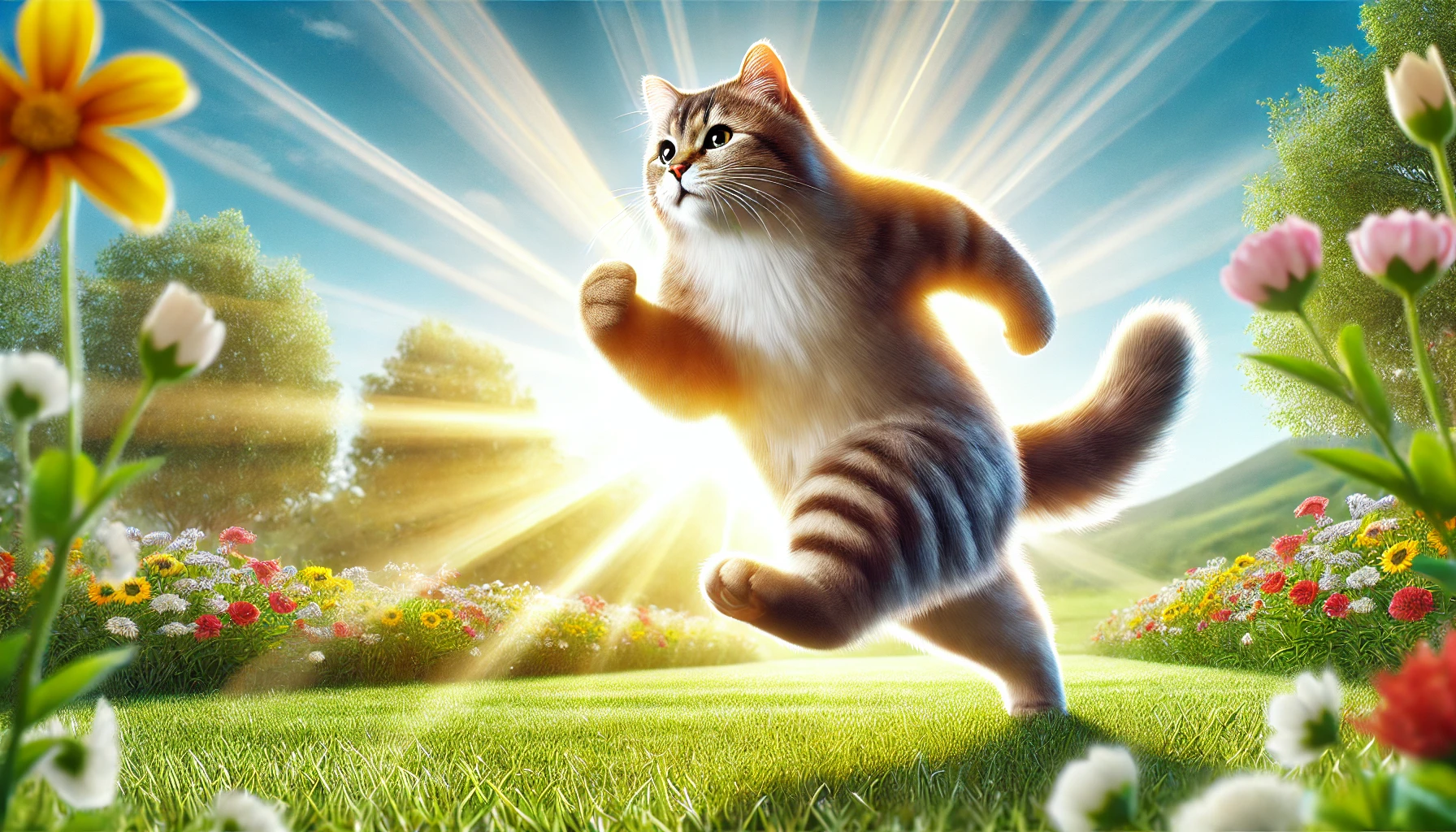
Energy Levels and Metabolism
Animal proteins provide an excellent source of energy for cats.
These proteins are digested and metabolized into amino acids, which the body uses for energy.
Unlike plant proteins, which may not be as efficiently utilized by the body, animal proteins offer a consistent and reliable energy source, particularly for highly active cats.
A high-protein diet helps your cat maintain optimal energy levels throughout the day, keeping them playful and energetic.
In addition to providing energy, animal proteins regulate metabolism.
Cats require more protein due to their specific metabolic needs, and a proper balance of animal proteins in their diet ensures their metabolism functions efficiently.
Feeding your cat a diet rich in animal proteins supports muscle growth, boosts immunity, and helps maintain a shiny coat, ensuring overall well-being.
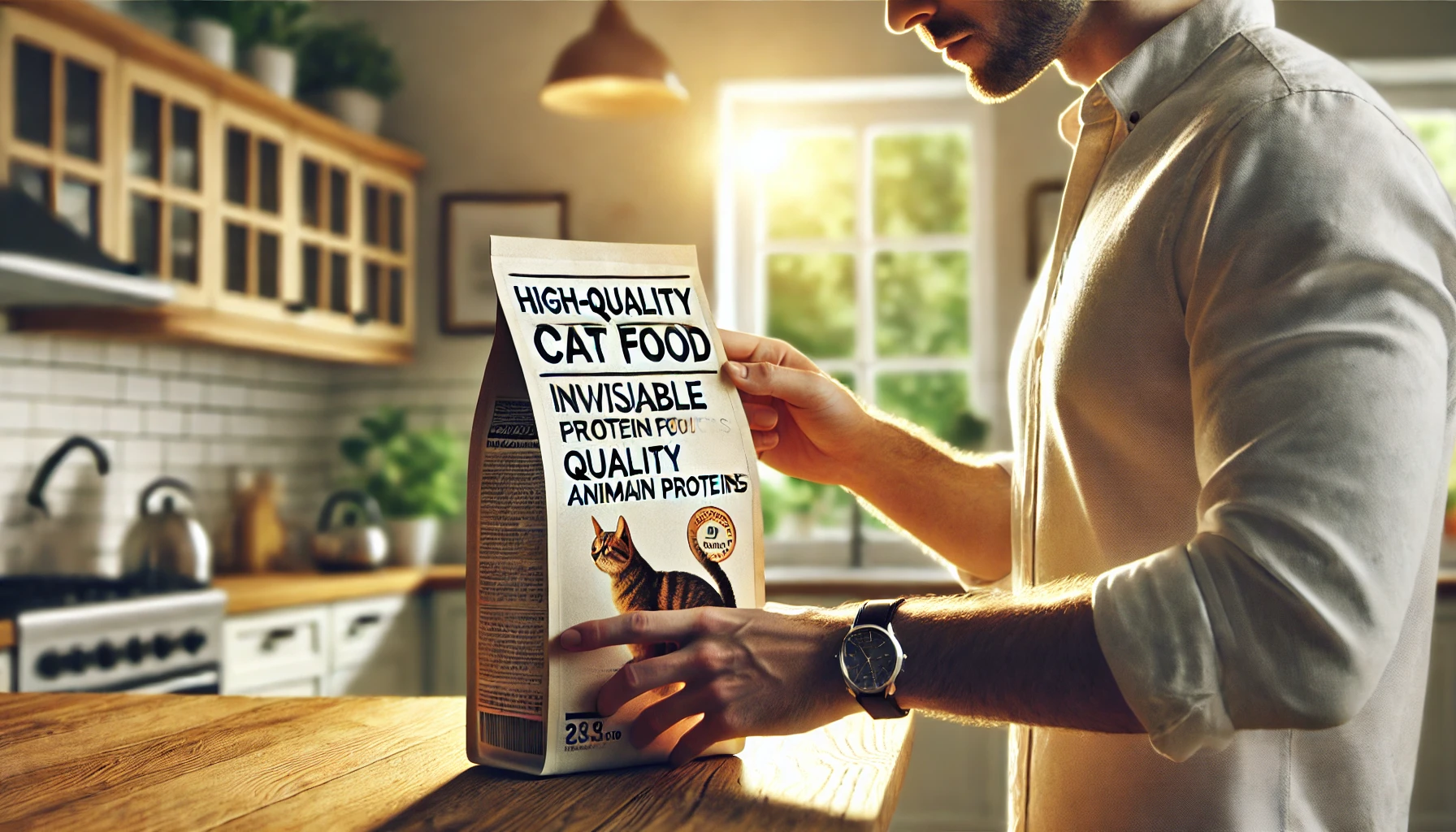
How to Choose Cat Food with Quality Animal Proteins
With so many options, choosing the best food for your cat can be difficult, if not daunting.
Yet, a significant part of being a responsible feline parent involves ensuring that your feline friend gets only the best animal proteins.
Not all cat food is created equal, and knowing what to look for can make all the difference when it comes to finding quality food filled with essential animal proteins.
Let’s take a closer look at a few key things to consider when looking for the right foods for your cat.
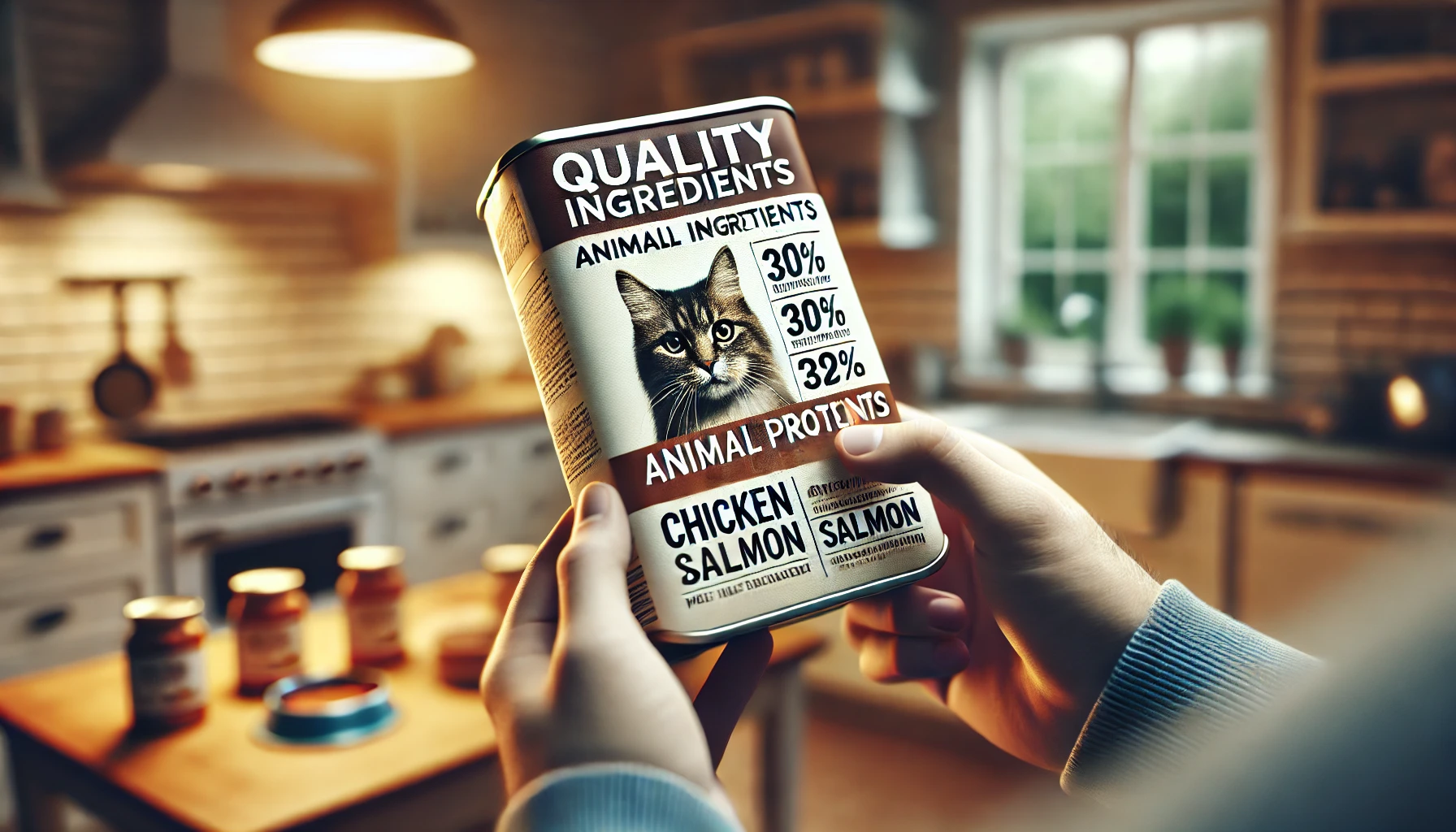
Knowing What to Feed Your Cat: Reading Cat Food Labels
When buying food for your cat, it is important that you can read and understand the labels.
While many commercial brands will indicate protein content, the source of that protein makes all the difference.
Look for foods where the first ingredient is a named source of animal protein, such as chicken, beef, or fish.
Ingredients like ‘meat by-products’ or ‘meat meal’ may indicate lower-quality sources of protein, so it’s essential to know the difference.
- Named Animal Proteins: Look for ingredients such as “chicken” or “salmon” as the first ingredient.
- Avoid By-products: Lower-quality protein sources include “poultry by-product meal” or “meat meal.”
- Look for Whole Meats: Whole animal meats provide better nutrition and are more digestible for cats.
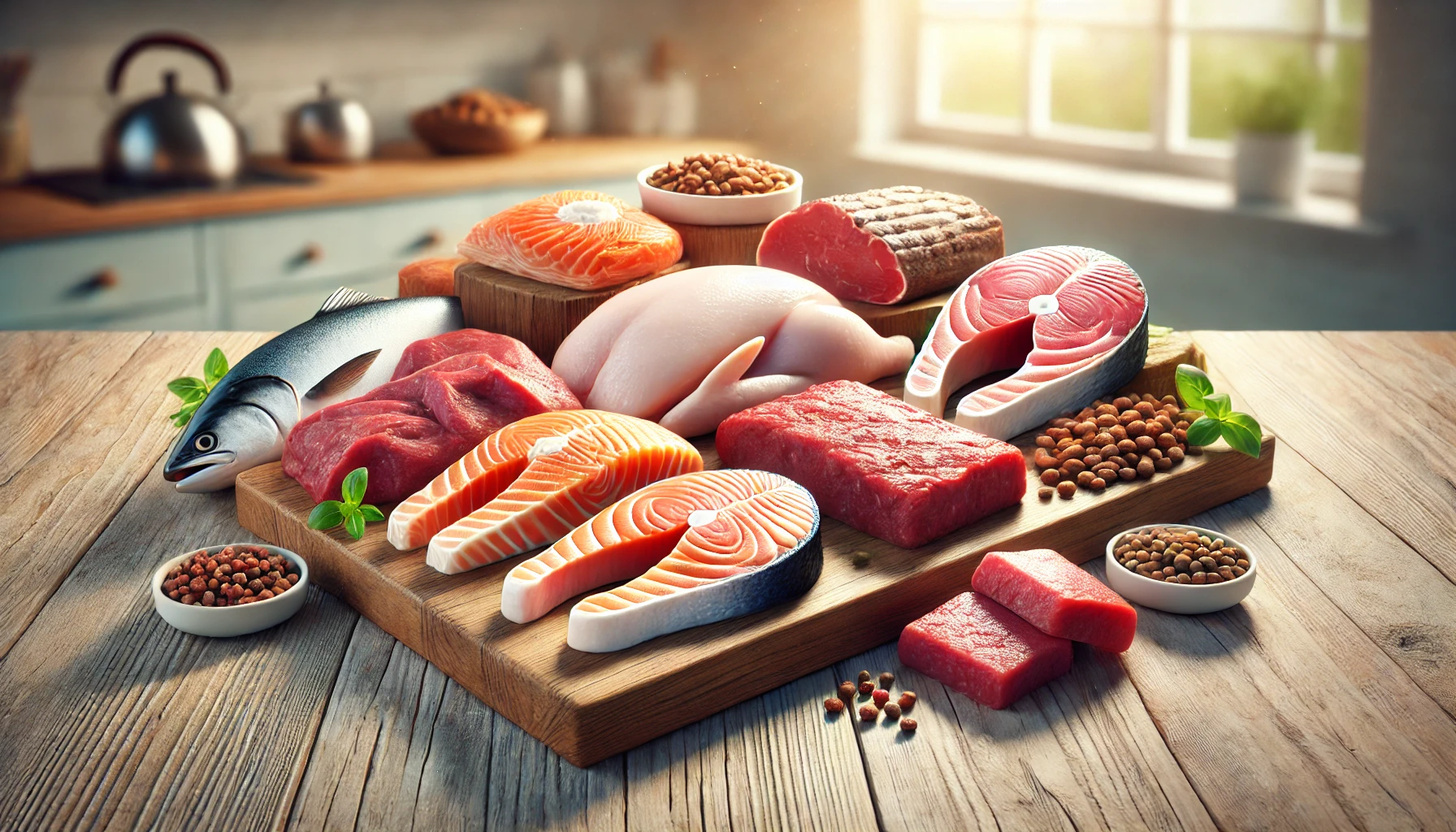
Identifying High-Quality Protein Sources
Not all proteins are alike.
High-quality animal proteins deliver complete amino acids, which your cat needs to thrive.
When considering a food’s protein, you want to see:
- Fresh or Frozen Meats: These are considered among the highest-quality sources of protein, retaining more nutrients.
- Named Meat Meals: Meat meals such as “chicken meal” can still be high quality if the source is specified and properly prepared, although fresh or frozen meats are superior.
- Fish and Seafood: Fish proteins are excellent, especially for their omega-3 fatty acids. Ensure the source is sustainably sourced and free of harmful additives.
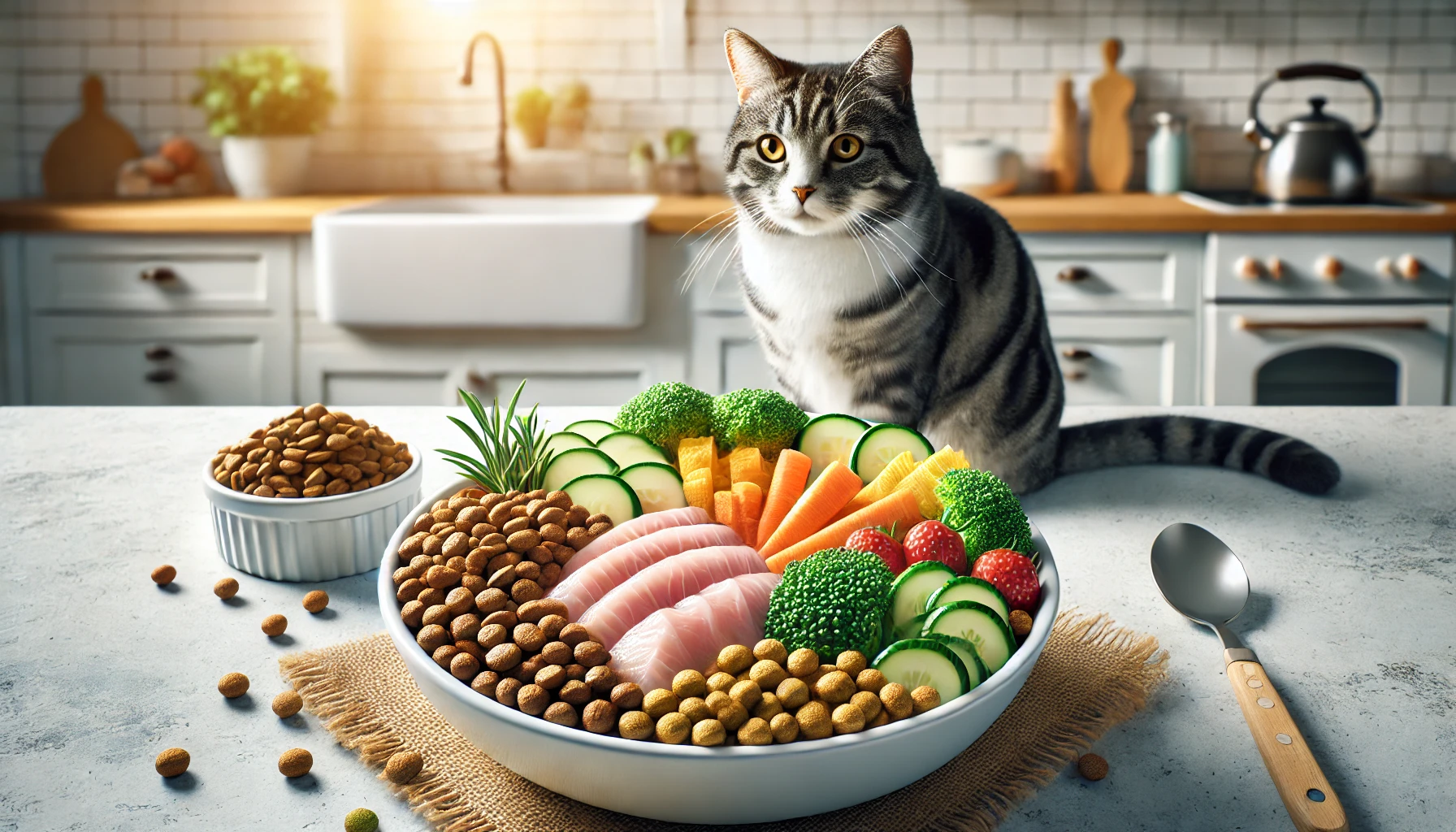
Balancing Animal Proteins with Other Nutrients
While animal proteins are critical, your cat’s food should provide a balanced diet.
A great cat food will include a mix of animal proteins, healthy fats, vitamins, and minerals.
Cats need specific nutrients like taurine, which is found only in animal proteins, but fat for energy and vitamins for overall health is equally important.
Always seek a balanced formula.
Many premium cat foods include added supplements such as omega-3 fatty acids for coat health or probiotics for digestion, but make sure the food isn’t overloaded with unnecessary fillers or additives.
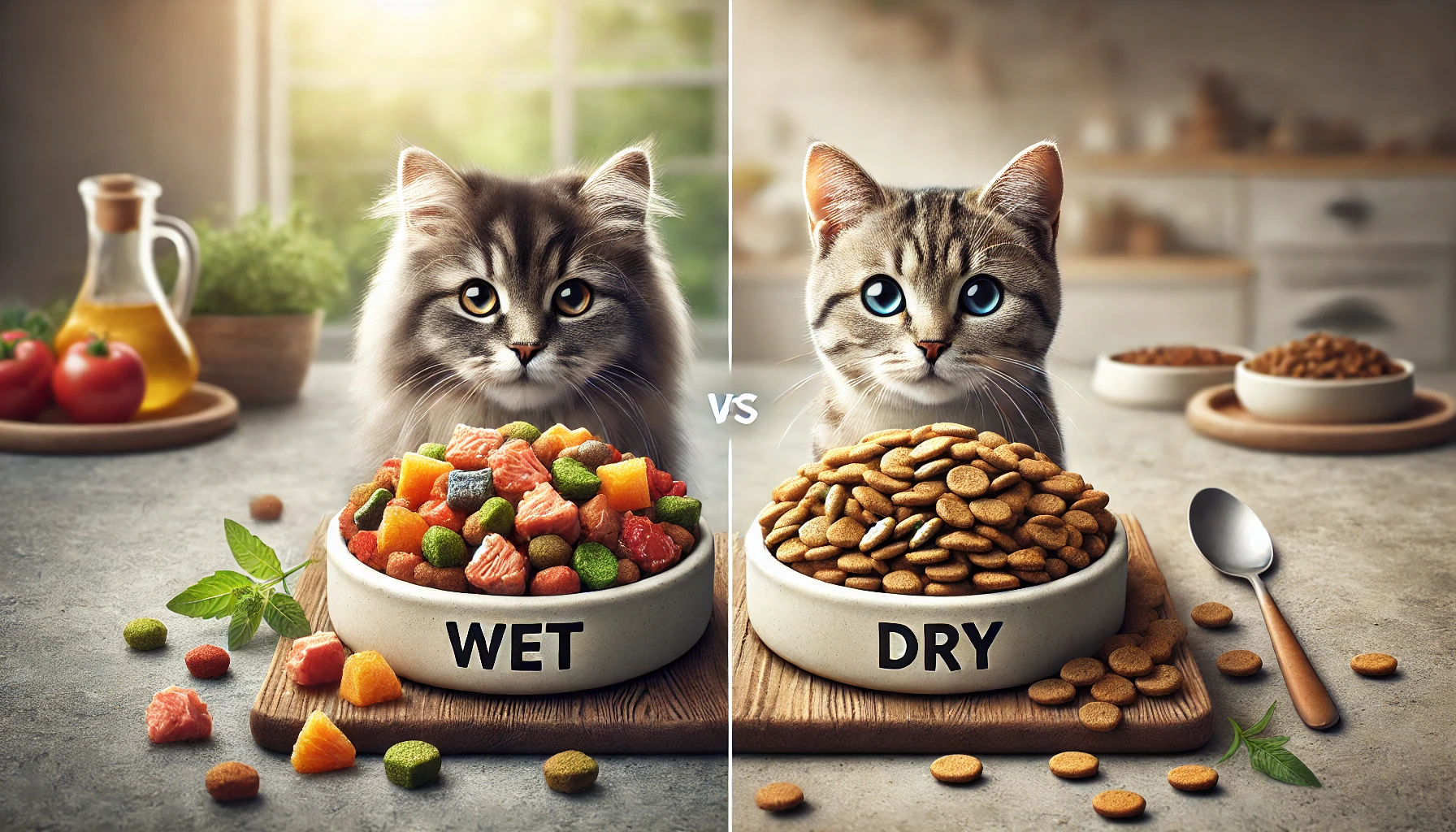
Comparison of Wet Food and Dry Food Protein Content
One of the major decisions you’ll make for your cat’s diet involves choosing between wet and dry food.
Wet food typically contains higher moisture, which is excellent for hydration, and often includes higher-quality animal proteins.
On the other hand, dry foods generally contain more concentrated protein and are easier to store long-term.
For optimal health, a combination of wet and dry food can provide the right balance of hydration and premium protein.
Always check the protein content and ensure the sources are named animal proteins.
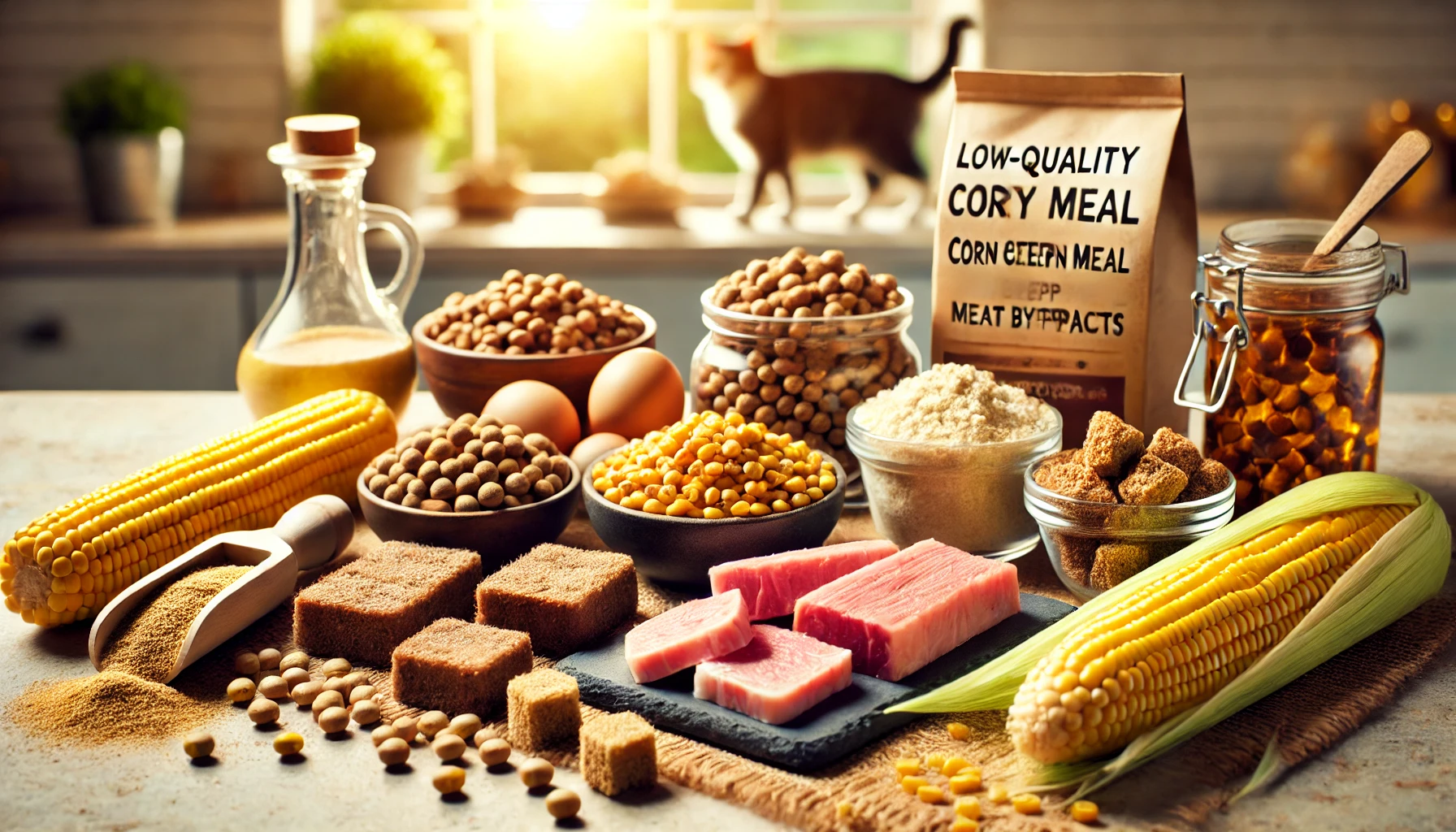
Low-Quality Protein Fillers to Avoid
While some cat foods use plant proteins or cheap fillers to increase protein content, these do not offer the same value as animal proteins.
Ingredients like soy, corn gluten meal, or pea protein should be minimized as they are harder for cats to digest and do not provide the complete amino acids that animal proteins do.
- Avoid Plant-based Fillers: Ingredients like soy or pea protein may sound like a protein source, but they lack the amino acids your cat needs.
- Limit Corn and Grains: Corn and grains are often used as fillers but offer little nutritional value to cats.
- Focus on Real Meat: The best cat foods feature real, named animal proteins as the first ingredient, without unnecessary fillers.
Pay close attention to labels and ensure the first ingredient is a high-quality named animal protein. Avoid by-products and focus on balanced nutrition.
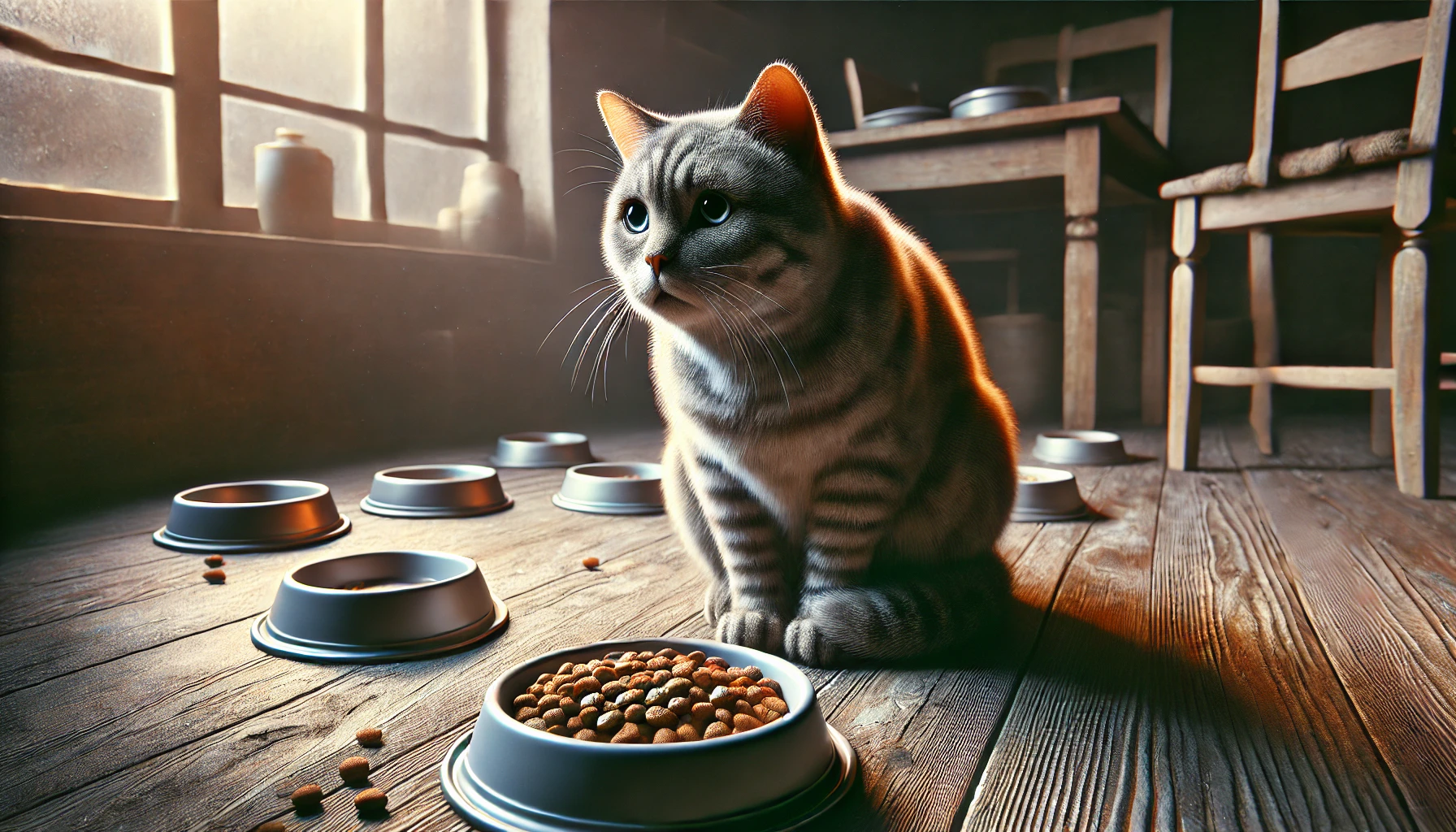
Potential Risks of Low Animal Proteins in Cat Foods
A deficiency in adequate animal proteins can be detrimental to your cat’s health.
Cats are obligate carnivores, requiring these proteins to meet their nutritional needs.
If their diet lacks high-quality animal proteins, it can lead to a variety of health problems, many of which may not be immediately apparent but can cause long-term damage.
Let’s explore the risks involved when your cat’s food lacks sufficient animal proteins.
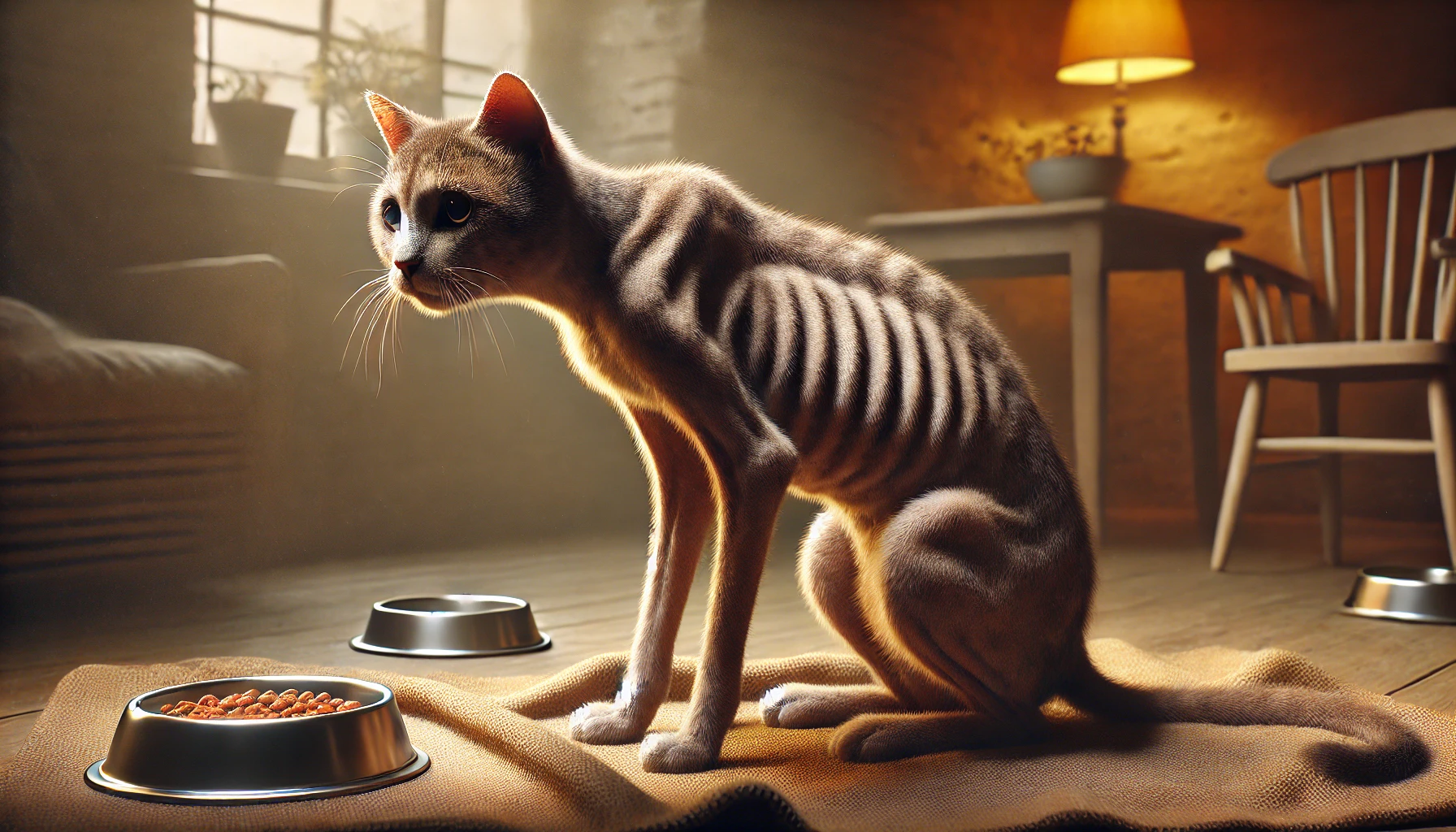
Signs of Protein Deficiency in Cats
Cats show visible signs when they are not getting enough animal proteins in their diet.
These signs may include:
- Weight Loss: Drastic weight loss due to muscle wasting.
- Lethargy: Lack of energy and reduced activity levels, as protein is a vital energy source.
- Poor Coat and Hair Loss: A dull, dry coat and hair loss, since proteins help maintain skin and coat health.
- Muscle Loss: Decreased muscle mass, which is critical for mobility and strength.
If you start to notice these signs, it’s likely your cat isn’t receiving enough animal proteins from their diet.
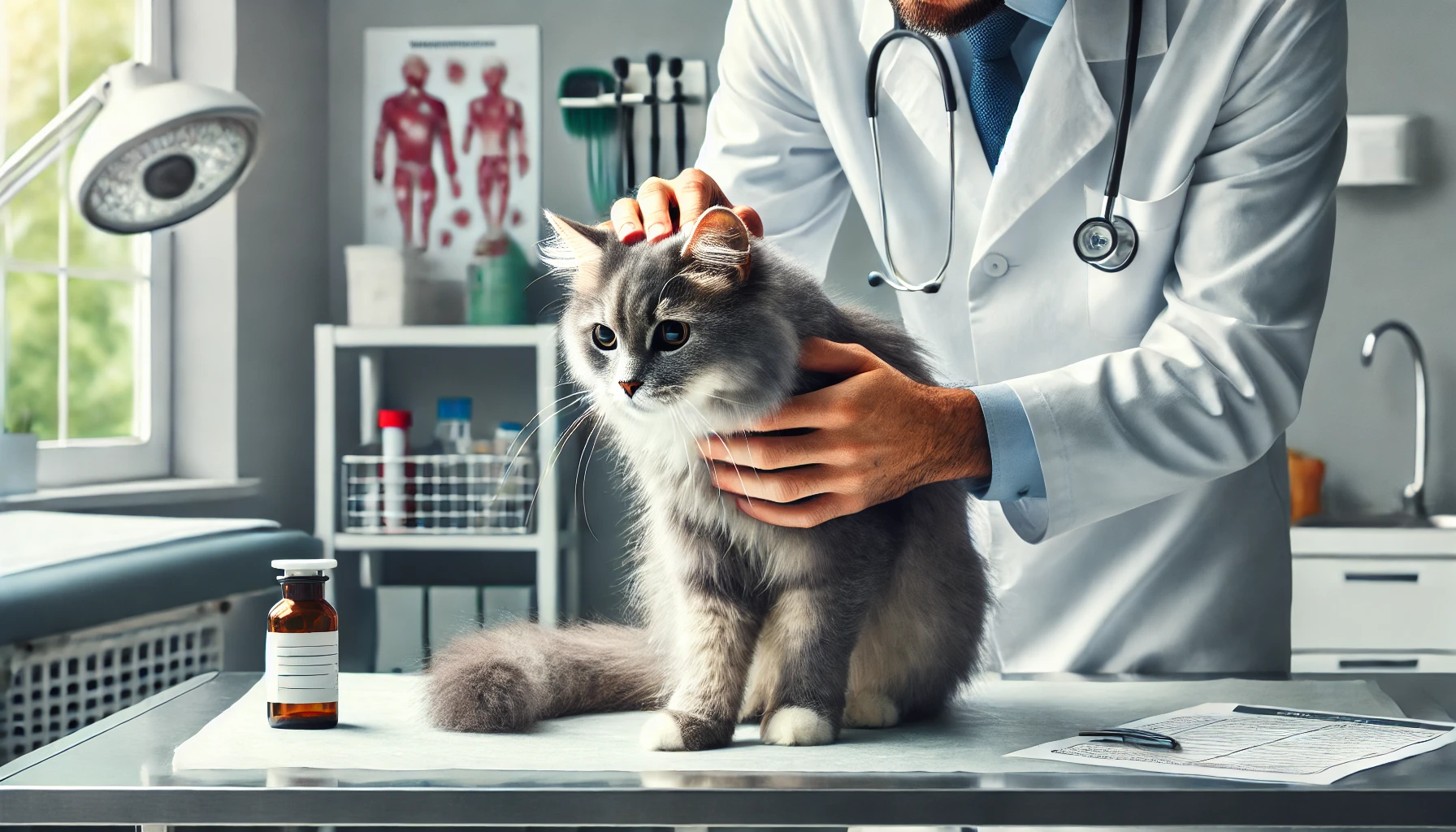
Health Issues Arising from Lack of Protein
A diet lacking sufficient animal proteins can result in various health issues for cats.
When their food doesn’t provide enough high-quality protein, they may suffer from:
- Weak Immune System: Cats require animal proteins to produce antibodies that fight infections. A protein deficiency can compromise their immune system, making them more susceptible to diseases.
- Delayed Growth and Development: Kittens and young cats need more animal proteins to grow and develop properly. A diet low in protein may hinder their development.
- Digestive Issues: Low-quality proteins can cause gastrointestinal issues like vomiting or diarrhea in cats.
- Organ Damage: Prolonged protein deficiency can lead to malfunctioning organs like the liver and kidneys, resulting in chronic health problems.
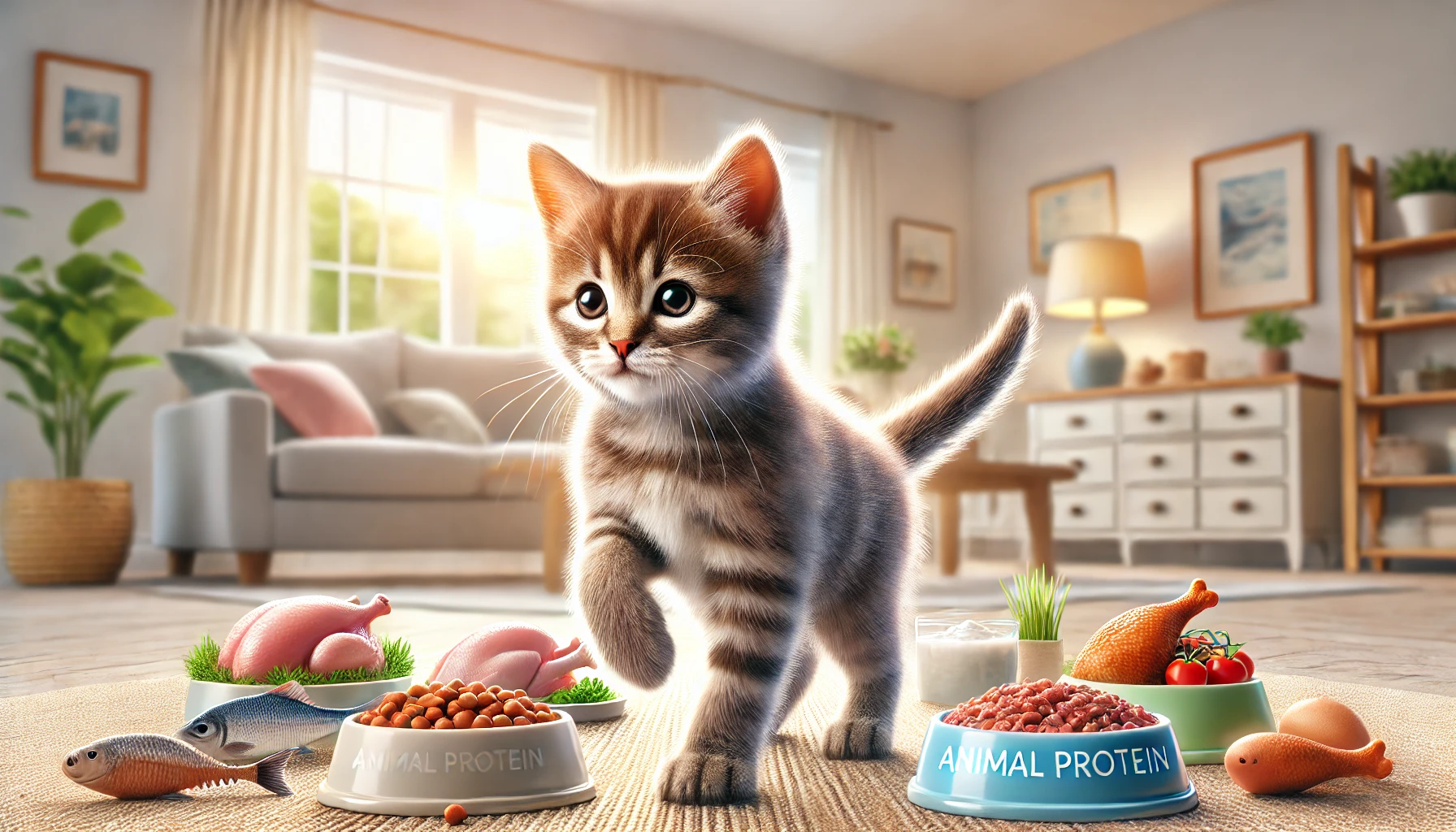
Why Animal Protein is Essential for Growth in Cats
Animal proteins provide essential amino acids like taurine, which are vital for a cat’s growth and development.
Cats rely on these amino acids, as they cannot produce them on their own.
A deficiency in taurine, found only in animal proteins, can lead to serious health issues, including:
- Heart Disease: Low taurine levels can result in dilated cardiomyopathy, a condition that impairs the heart’s ability to pump blood efficiently.
- Vision Loss: Taurine deficiency can cause retinal degeneration, leading to blindness.
- Reproductive Problems: In female cats, taurine deficiency may result in reproductive issues or complications during pregnancy.
Ensuring your cat’s diet is rich in animal proteins can help prevent these severe health problems.
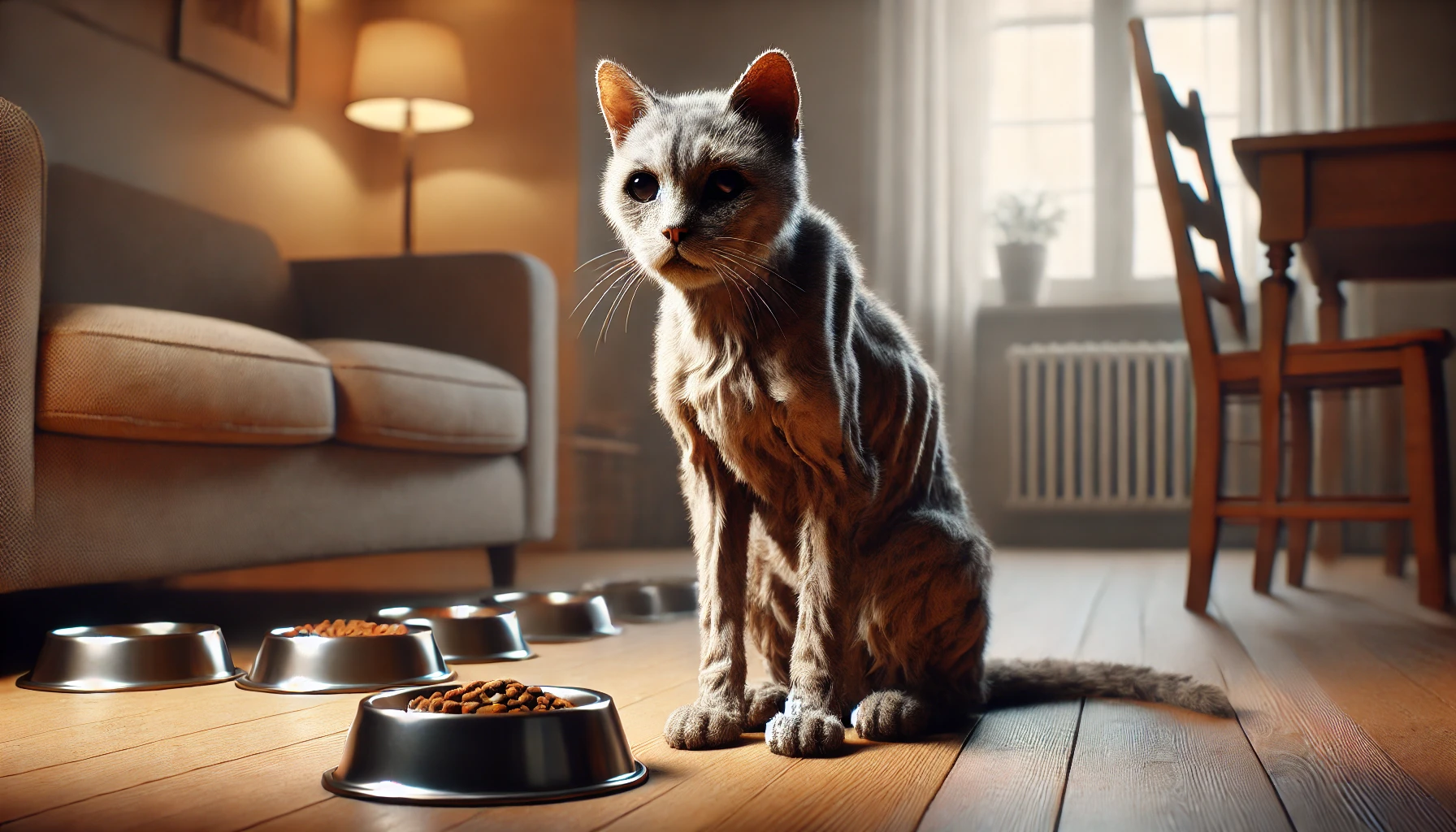
Long-term Effects of a Poor Diet on Cats
Feeding your cat a diet consistently low in high-quality animal proteins can have long-term effects.
Over time, inadequate protein intake weakens their overall health, shortens their lifespan, and reduces their quality of life.
Some long-term effects include:
- Chronic Conditions: A protein-deficient diet can lead to chronic conditions, such as liver disease or immune deficiencies.
- Reduced Lifespan: Cats that do not get enough animal proteins may experience a shortened lifespan due to weakened organ function and health issues.
- Poor Recovery from Illness or Injury: Protein is essential for tissue repair and healing. Without enough animal proteins, cats may have difficulty recovering from illness or injury.
Choosing cat food that provides the right amount of animal proteins is essential for keeping your feline friend healthy and fit for the long term.
A deficiency in animal proteins can lead to muscle loss, poor coat health, and weakened immunity in cats. It’s essential to choose food that provides sufficient high-quality animal proteins.
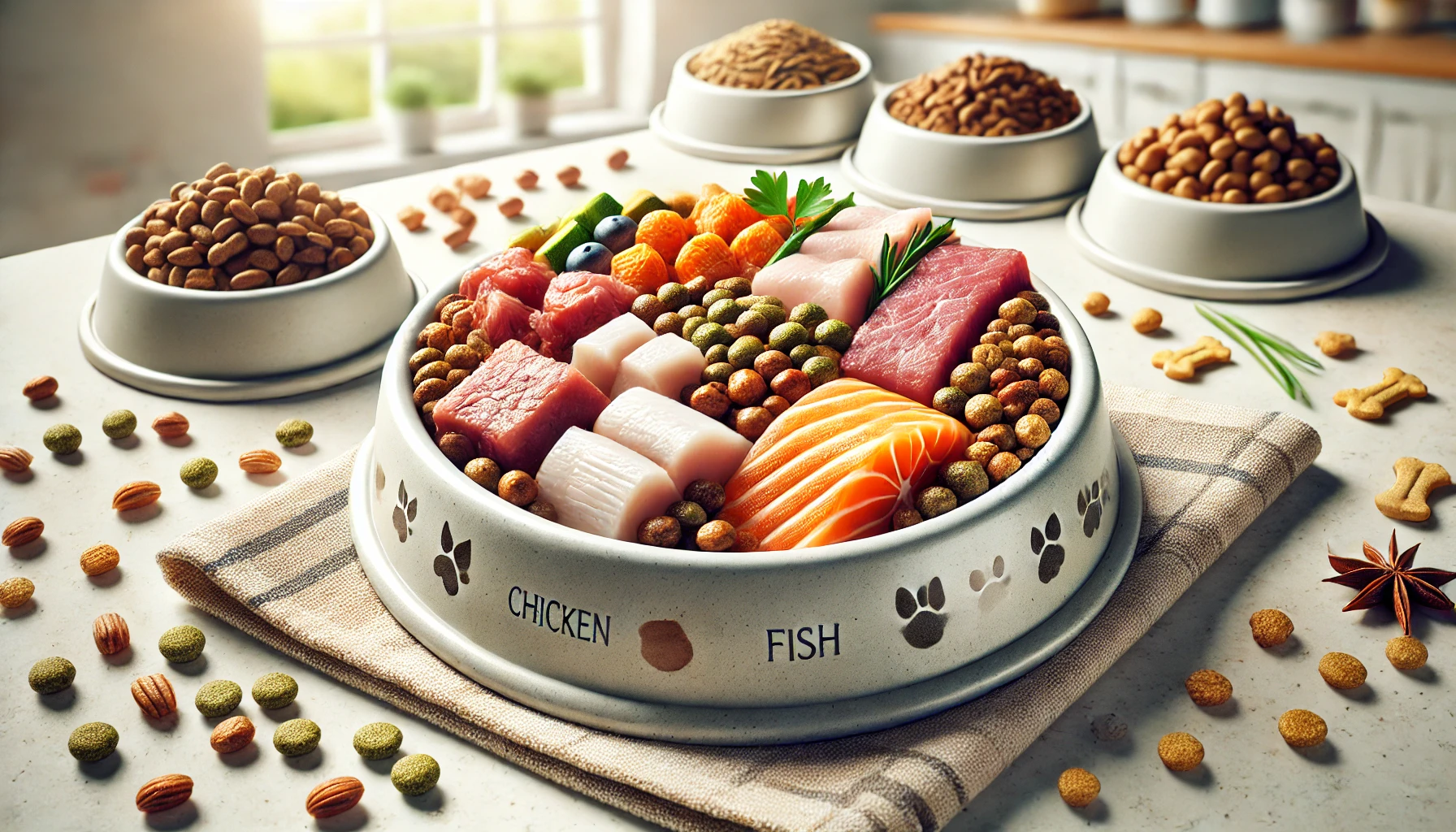
How Much Animal Protein Does a Cat Food Actually Need?
Determining the right amount of animal protein to feed your feline companion is crucial for ensuring they remain healthy and well.
The amount of animal protein needed depends entirely on their age, activity level, and any existing health conditions.
Providing a diet rich in high-quality animal proteins is of paramount importance, and there are guidelines and recommendations that can help you figure out the right balance.
Let’s take a closer look at how much animal protein should be in cat food.
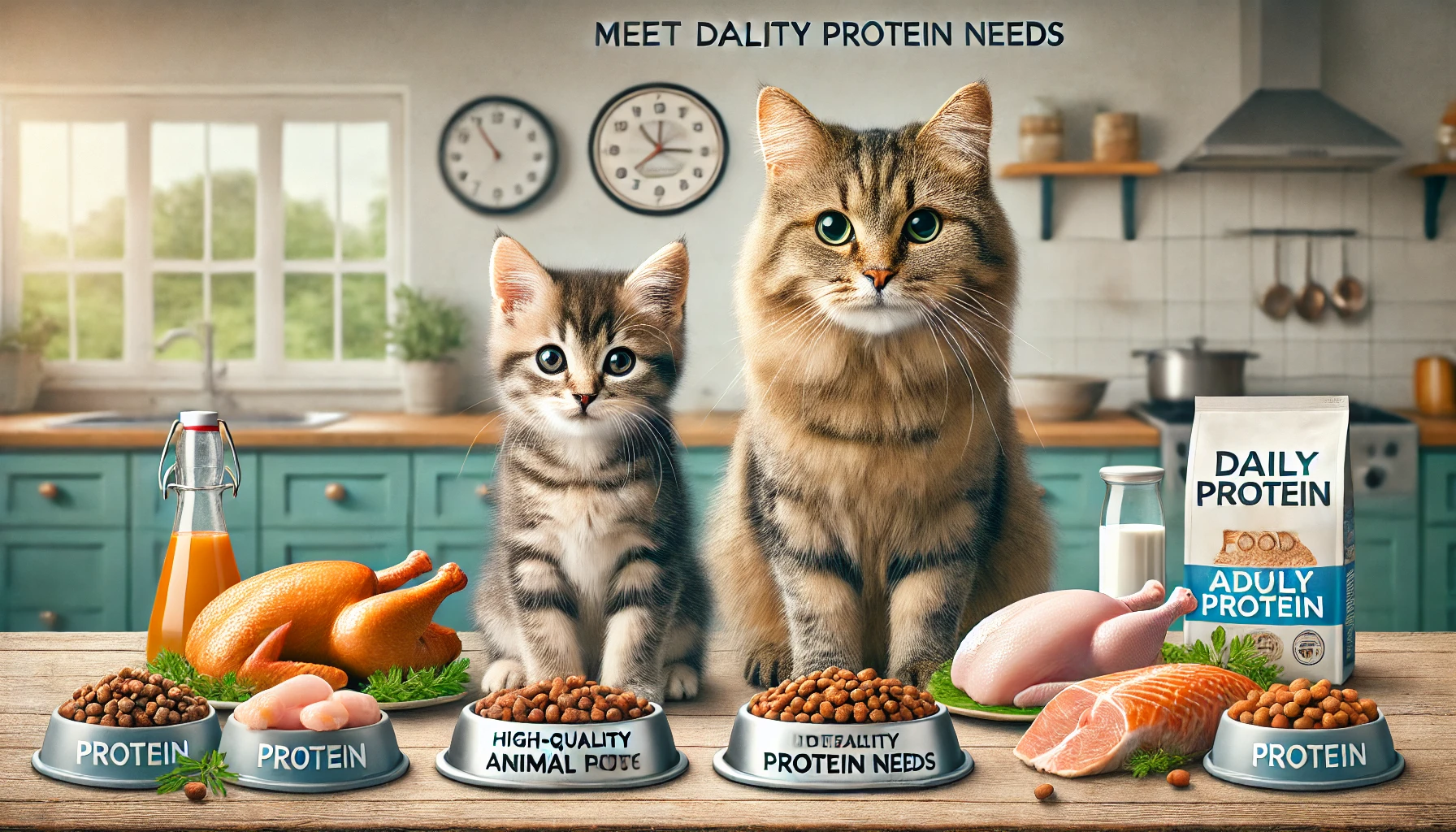
Daily Protein Requirements for Cats
Generally, cats require a high-protein diet.
Nutritional guidelines suggest that the diet of an adult cat should contain about 26% protein, while kittens, who are still growing, may need up to 30%.
These percentages reflect protein levels on a dry matter basis, meaning the moisture content in the food is not considered.
The quality of the protein is just as important as the amount.
Higher-quality animal proteins are more digestible and better supply the essential amino acids necessary for overall health.
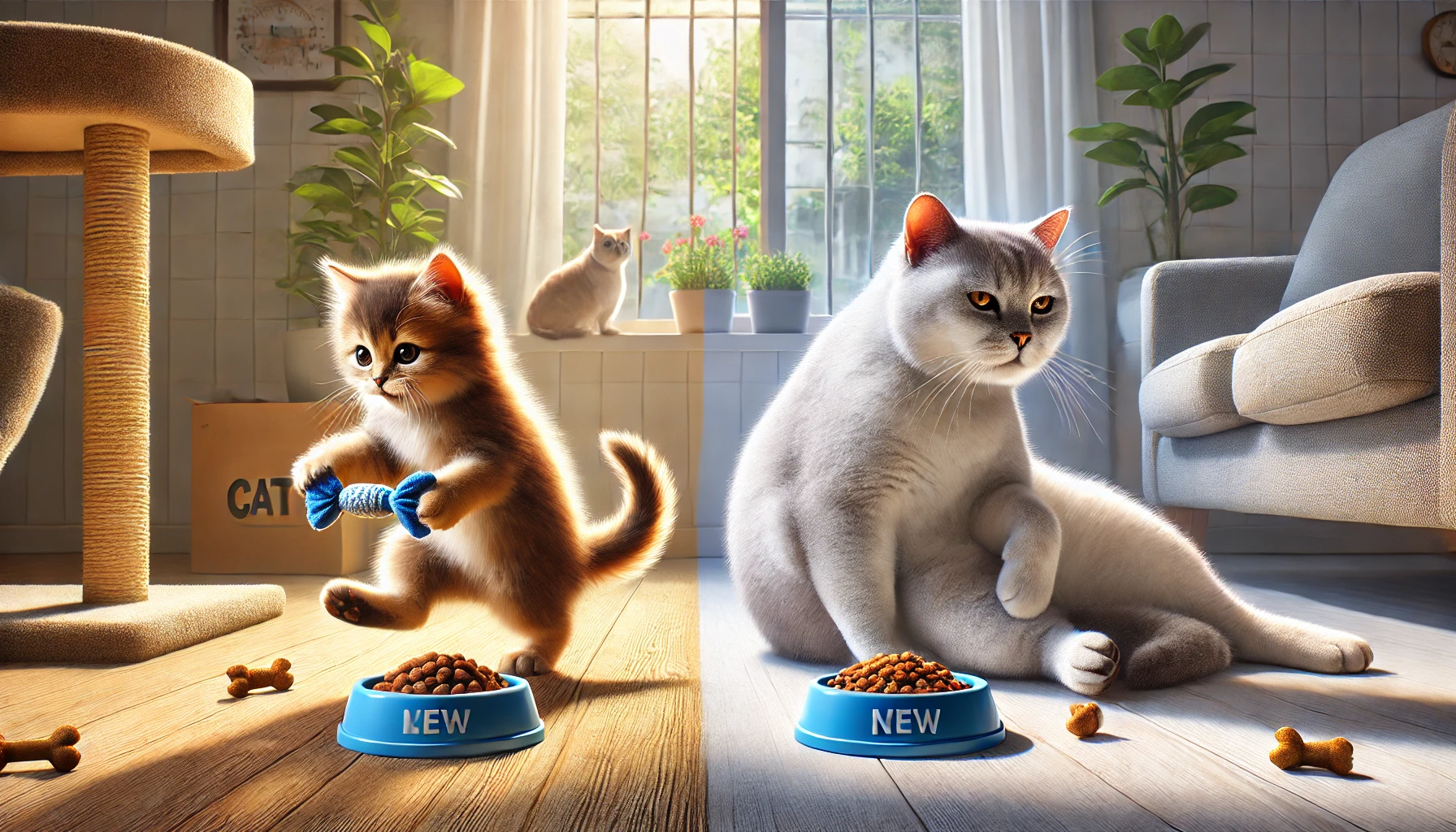
Age and Activity Level Considerations
Your cat’s need for animal protein also varies depending on their age and activity level.
In general, younger and more active cats require more animal proteins.
Kittens, in particular, need a higher percentage of animal proteins due to their rapid growth.
- Kittens: Need more protein for growth, typically around 30% or more.
- Active Adult Cats: Require about 26-30% protein to maintain muscle mass and energy levels.
- Older Cats: May need more digestible proteins due to age-related digestive issues, but should still consume around 26% protein to maintain muscle mass and support organ function.
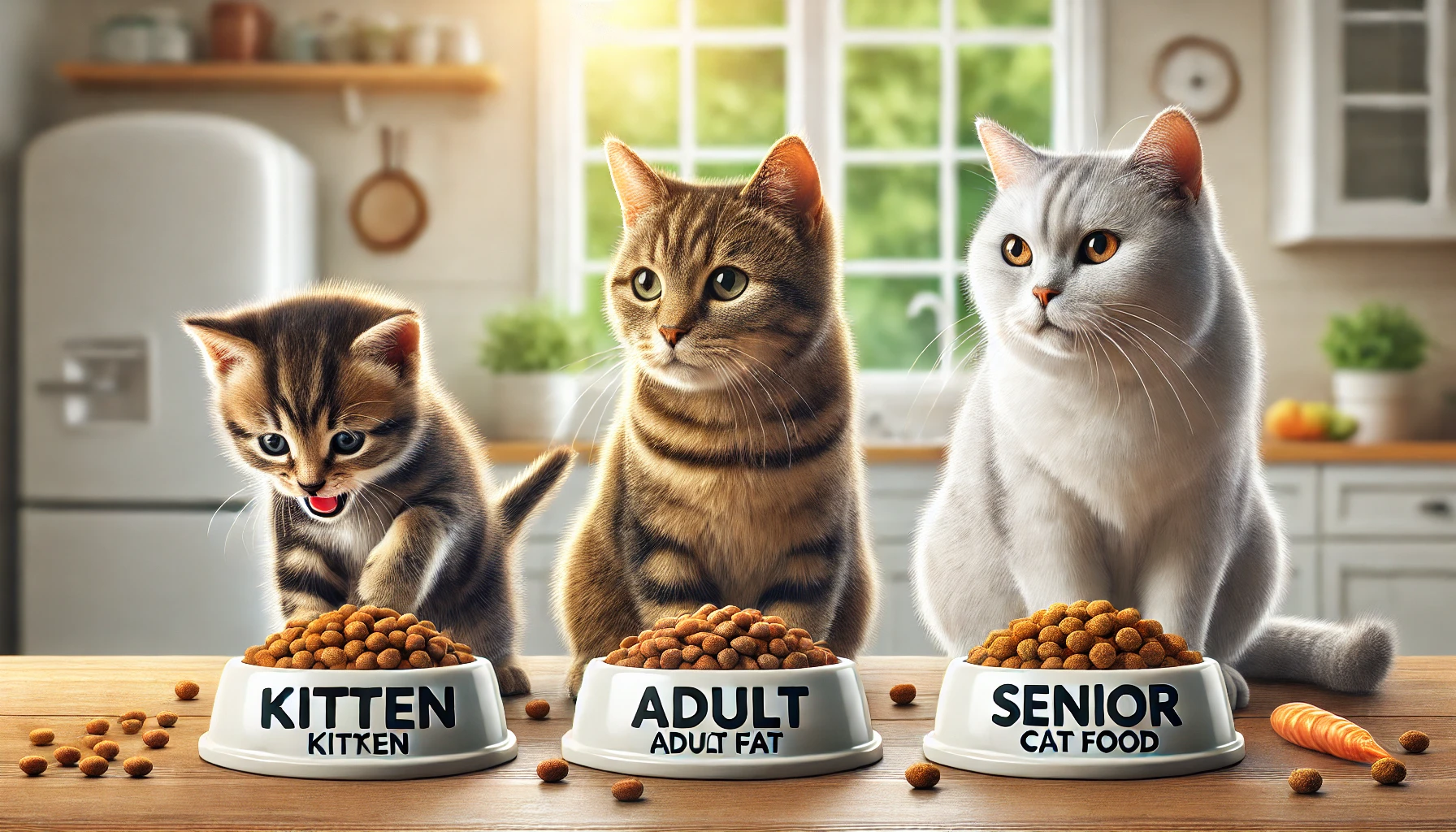
Protein Requirements for Special Life Stages
Some cats have special dietary needs that require adjustments to their protein intake.
For instance, cats with obesity may need a high-protein, low-fat diet to help with weight loss while maintaining muscle mass.
On the other hand, cats with kidney disease may need lower protein levels, but still rely on high-quality animal proteins to avoid putting additional stress on their kidneys.
- Obese Cats: A high-protein, low-fat diet helps promote weight loss while preserving muscle mass.
- Cats with Kidney Disease: These cats often require a reduced-protein diet with high-quality animal proteins to prevent further kidney stress.
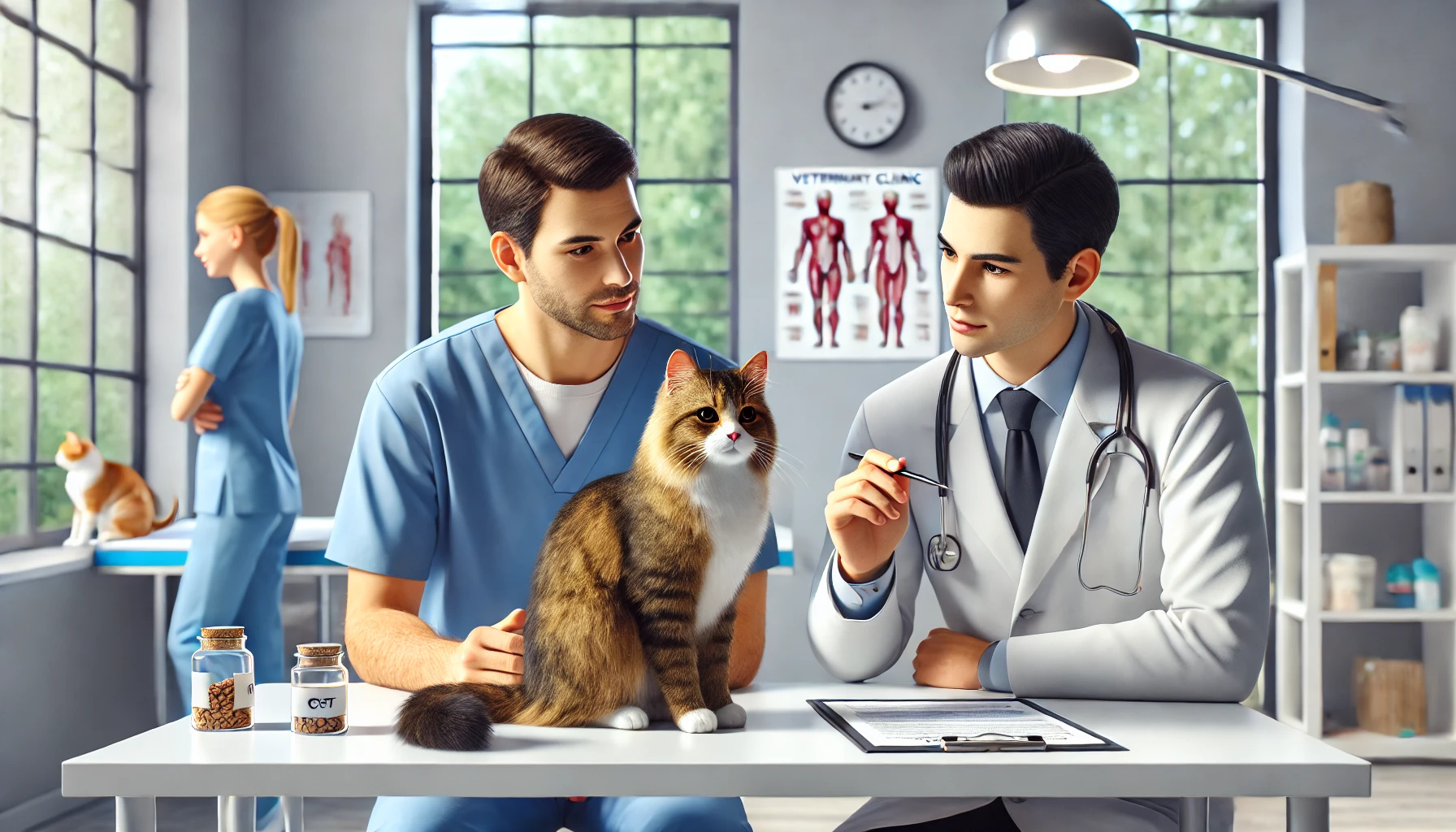
Dietary Requirements: Consulting a Veterinarian
Before making significant changes to your cat’s diet or protein intake, it is always best to consult with a veterinarian.
A vet can assess your cat’s specific needs based on their age, weight, activity level, and any underlying health conditions.
They can recommend the best cat food brands and protein sources to ensure your cat gets the right amount of animal proteins in their diet.
In some cases, your veterinarian might suggest adding supplements or adjusting feeding schedules to meet your cat’s protein and overall dietary needs more effectively.
Cats require a diet high in animal protein, with adult cats needing around 26% and kittens up to 30%. Quality is just as important as quantity.
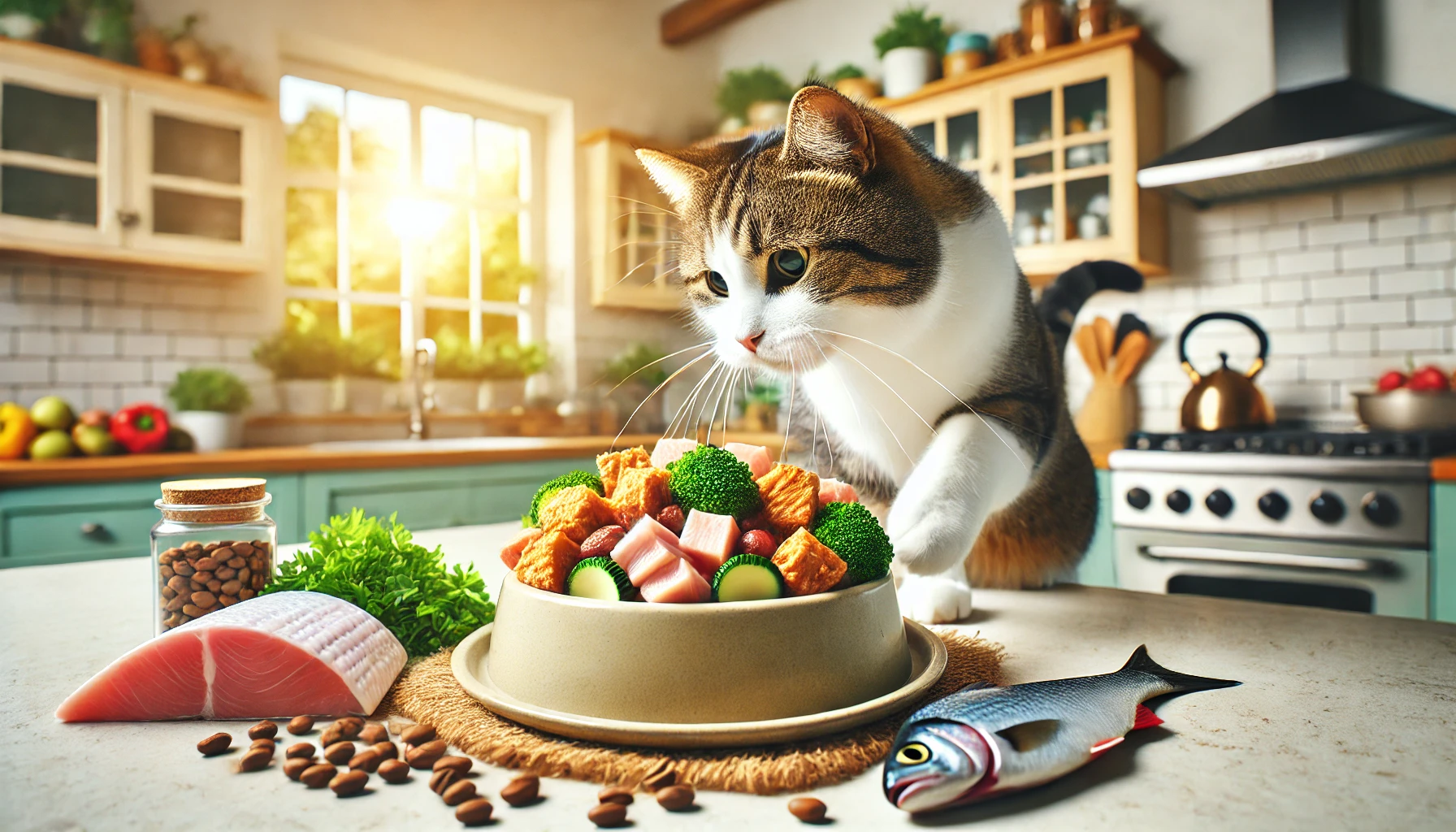
The Importance of Animal Proteins in Your Cat’s Diet: A Summary
Amino acid-rich animal protein-based nutrition forms the foundation of health, welfare, and longevity in your cat.
As obligate carnivores, cats rely on these animal proteins to achieve the required level of amino acids for everything from muscle development to the functioning of the immune system.
By understanding the role that animal proteins play in cat food, you will be better equipped to make the right choices for the long-term benefit of your feline companion.
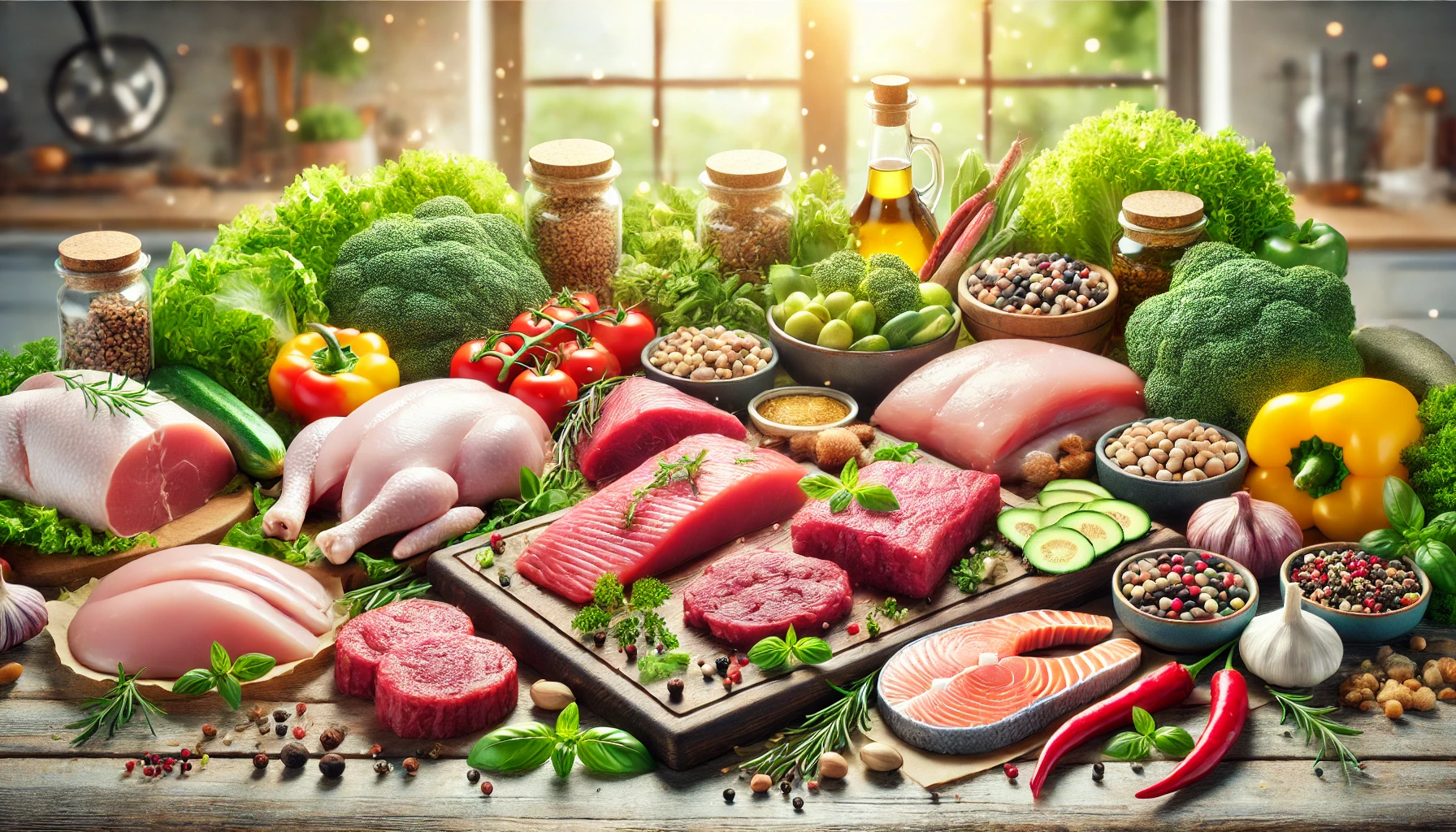
Animal Proteins: Importance
Animal proteins are at the core of a healthy cat diet.
Unlike plant proteins, they provide all the essential amino acids necessary for growth, repair, and overall function.
Without enough of these proteins, your cat can suffer from malnutrition, weakened immunity, and even organ damage.
Recognizing signs like weight loss or a dull coat as indicators of protein deficiency can help you take timely corrective action with your cat’s diet.
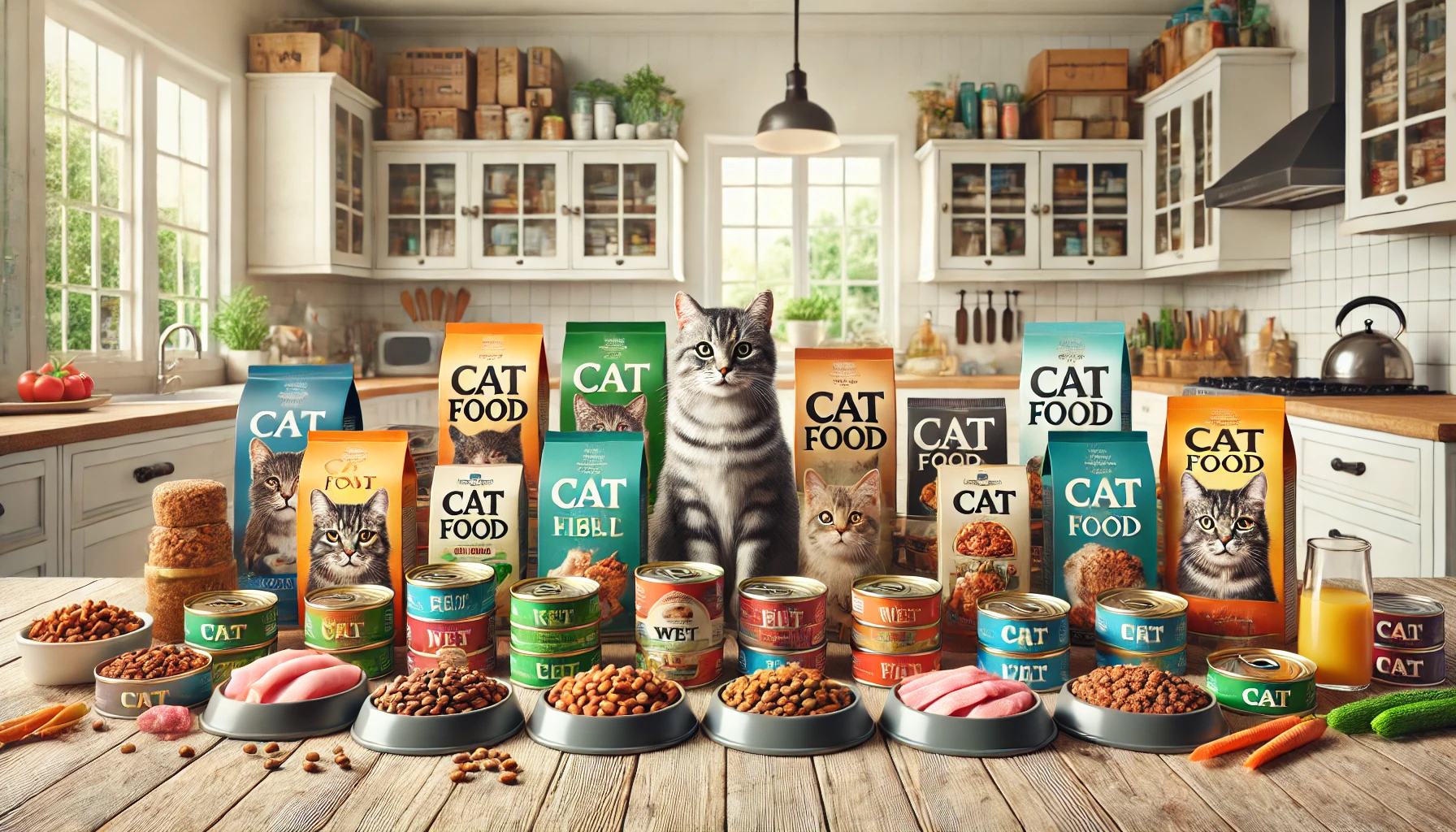
Key Takeaways for Choosing the Best Cat Food
When selecting the best cat food, pay close attention to the following:
- Named Animal Proteins: Ensure that the first ingredient is a named source of high-quality animal proteins, such as chicken or salmon.
- Avoid By-products: Low-quality protein sources like “meat meal” or “by-products” should be avoided.
- Balanced Nutrition: While animal proteins are essential, your cat also requires healthy fats, vitamins, and minerals for overall well-being.
By focusing on foods that feature whole animal proteins, you provide your cat with the necessary nutrients to stay healthy.
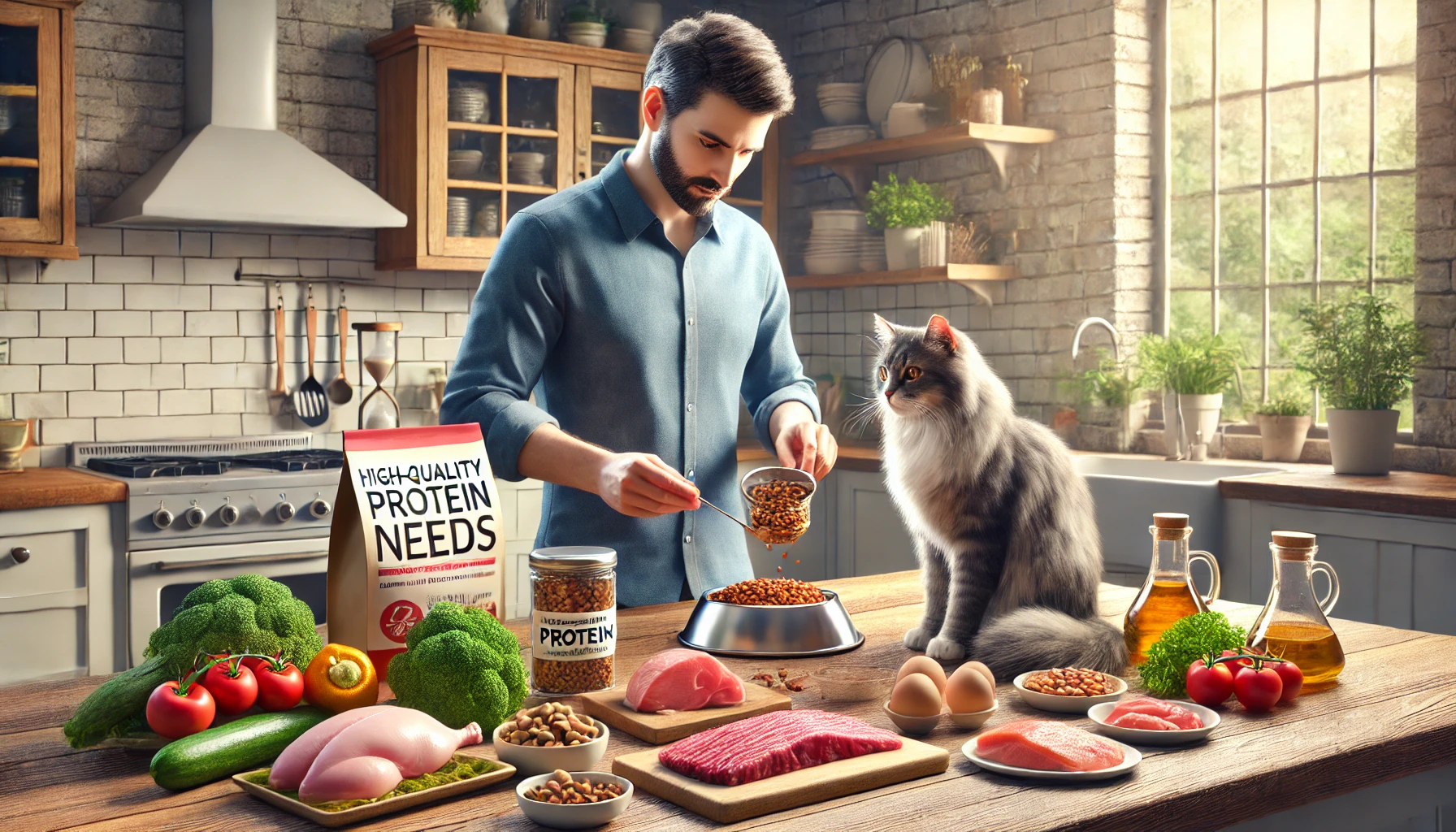
Meeting the Specific Protein Needs of Your Cat
Whether your pet is a kitten or a senior cat, their protein needs will vary based on age, activity level, and health conditions.
Kittens require more animal proteins to support their growth, while senior cats benefit from easily digestible proteins.
Special dietary needs, such as obesity or kidney disease, may also require adjustments in protein intake.
Consulting a veterinarian is the best way to determine your cat’s specific protein requirements.
A vet can help tailor your cat’s diet to their particular health needs, ensuring they get the right amount of animal proteins for optimal health.
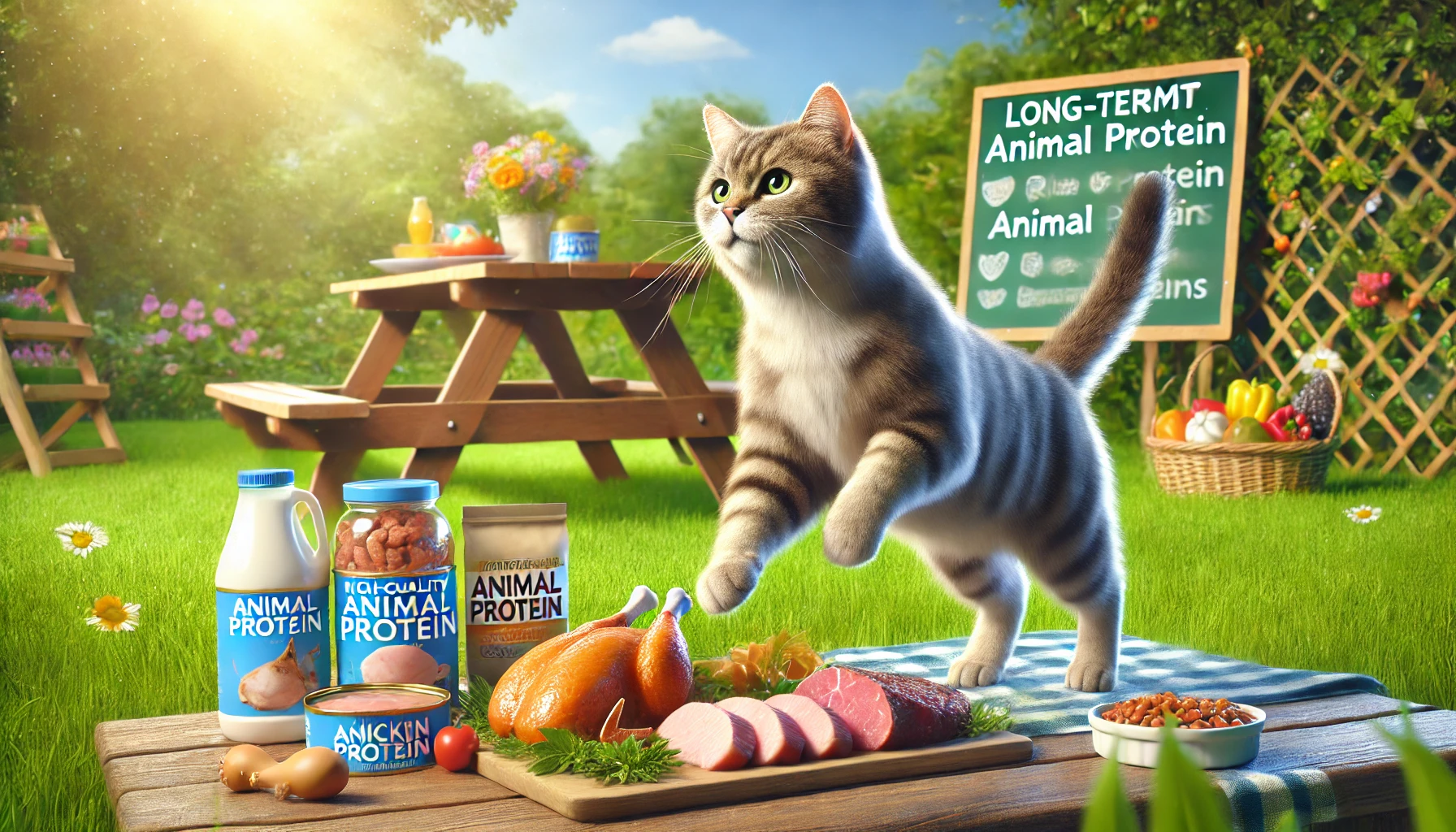
Long-term Benefits of Animal Proteins
Feeding your cat a diet rich in high-quality animal proteins offers numerous long-term benefits.
It helps maintain strong muscles, a healthy immune system, and a shiny coat.
More importantly, it supports internal organ function, promoting longevity and allowing your feline friend to live a happy and healthy life.
Ultimately, prioritizing animal proteins in your cat’s diet is one of the best ways to support their long-term well-being and overall quality of life.
Animal proteins are essential for your cat’s long-term health, promoting muscle growth, immune function, and energy levels. Always prioritize high-quality animal proteins in their diet.
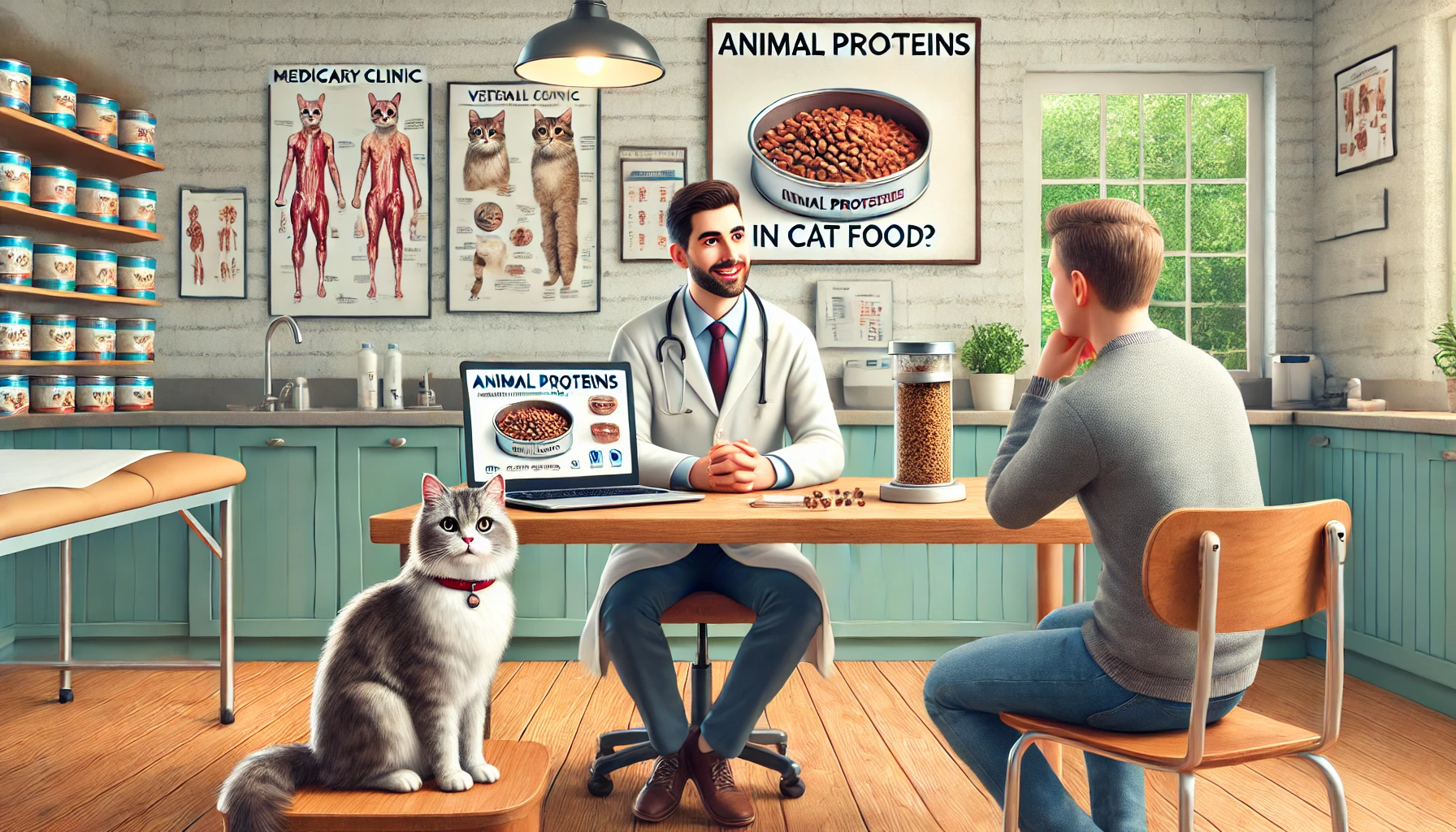
Frequently Asked Questions About Animal Proteins in Cat Food
Understanding the role of animal proteins within cat food is vital for your cat’s health and well-being.
Below are some of the most frequently asked questions about animal proteins in feline diets.
Why are animal-based proteins superior to plant-based proteins for cats?
Animal proteins contain all the essential amino acids required for feline metabolism, which are not present in plant proteins.
Cats have evolved to digest and utilize animal proteins far more effectively than plant-based ones.
How much animal protein does my cat need daily?
Adult cats generally need about 26% protein in their diet, while kittens require up to 30%.
The exact requirement varies depending on age, activity levels, and health conditions.
High-quality animal proteins are the most important source of nutrition.
What are examples of high-quality animal proteins for cats?
Examples of high-quality animal proteins include chicken, salmon, beef, and turkey.
These should be one of the first ingredients in your cat’s food, providing key nutrients like essential amino acids and other vital nutrients.
Can my cat be healthy on a plant-based diet?
No, cats are obligate carnivores and need animal proteins for essential nutrients such as taurine, which plant-based diets cannot provide in sufficient amounts.
A diet lacking animal proteins can lead to malnutrition and serious health problems.

